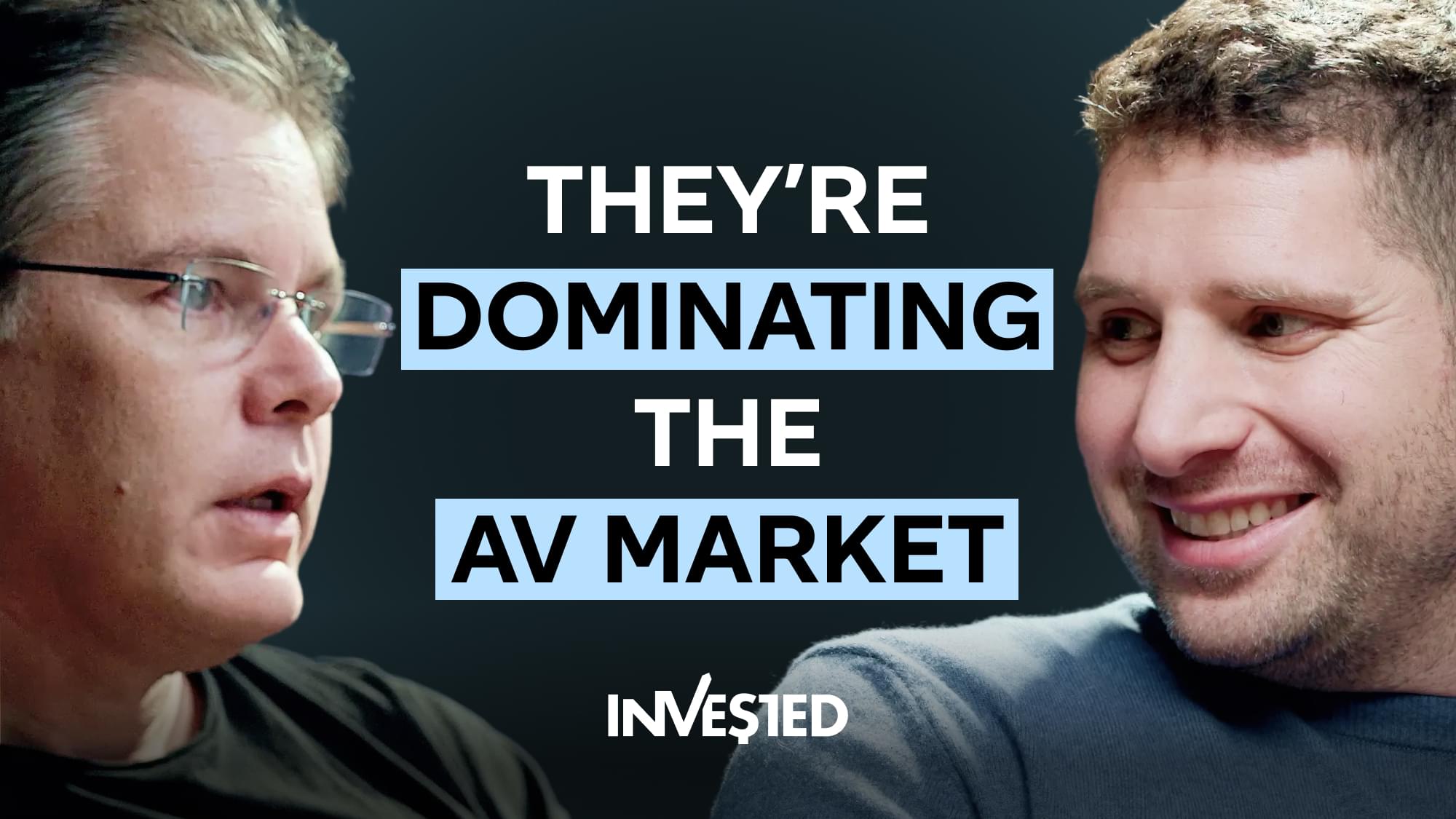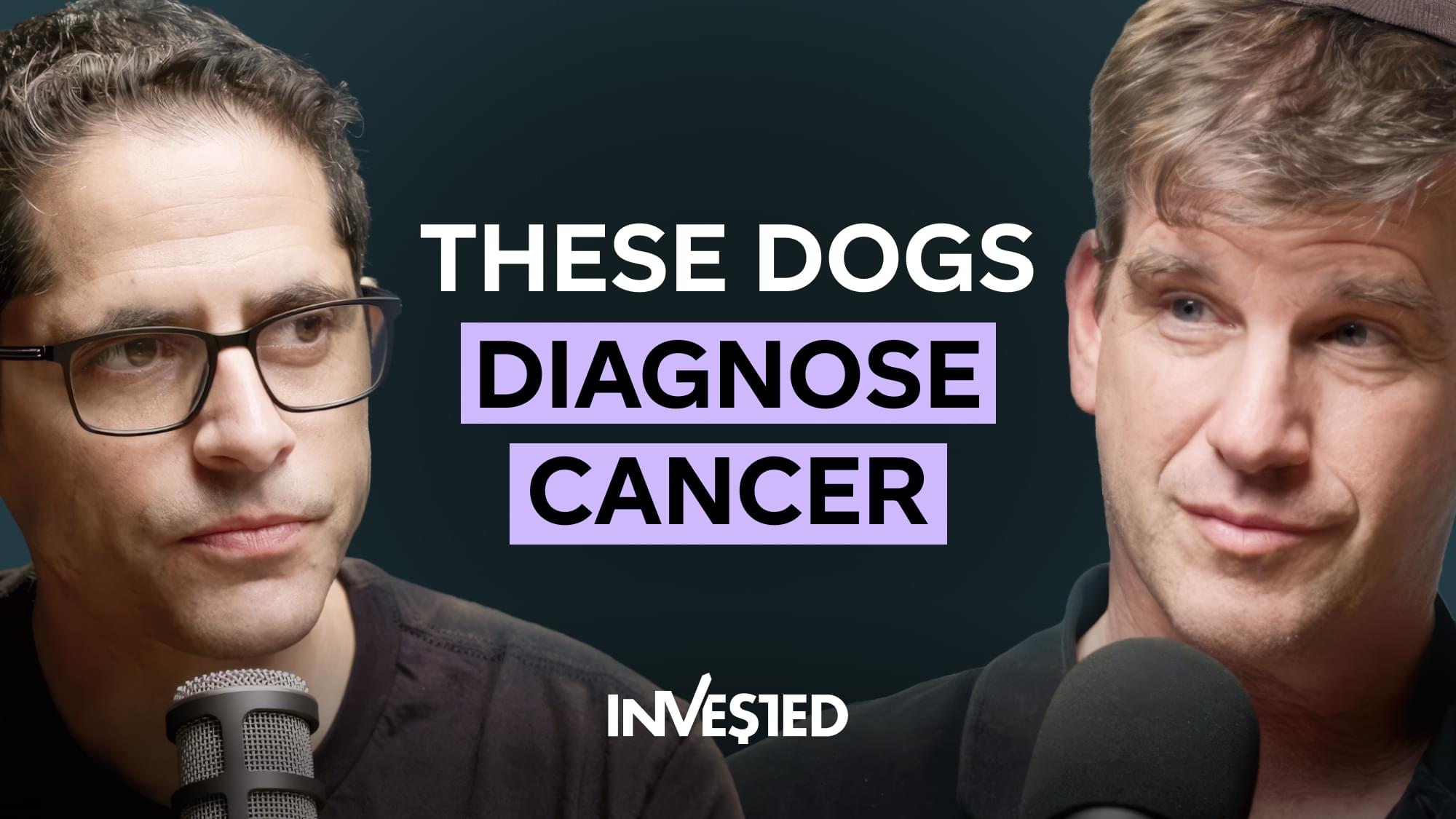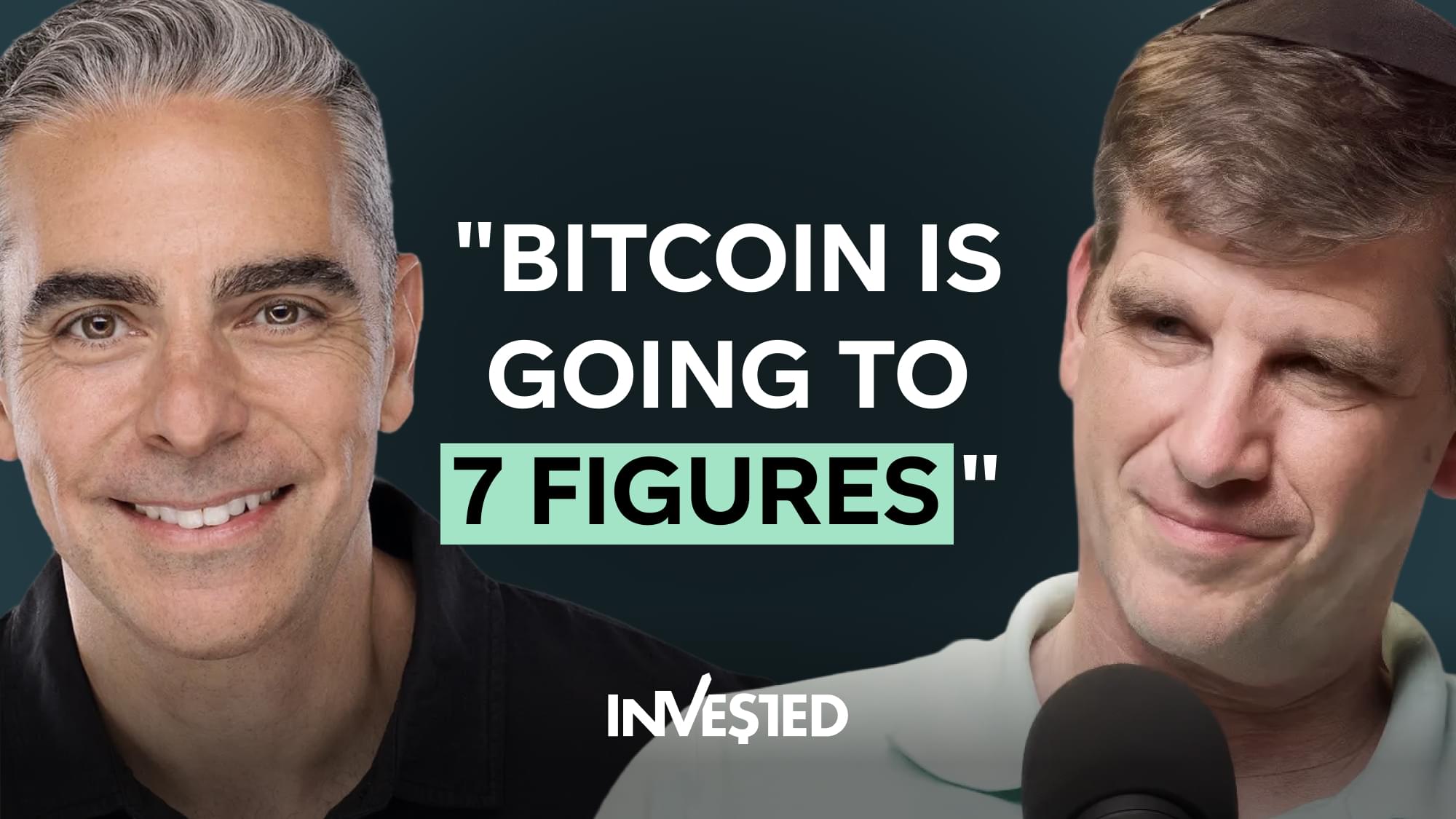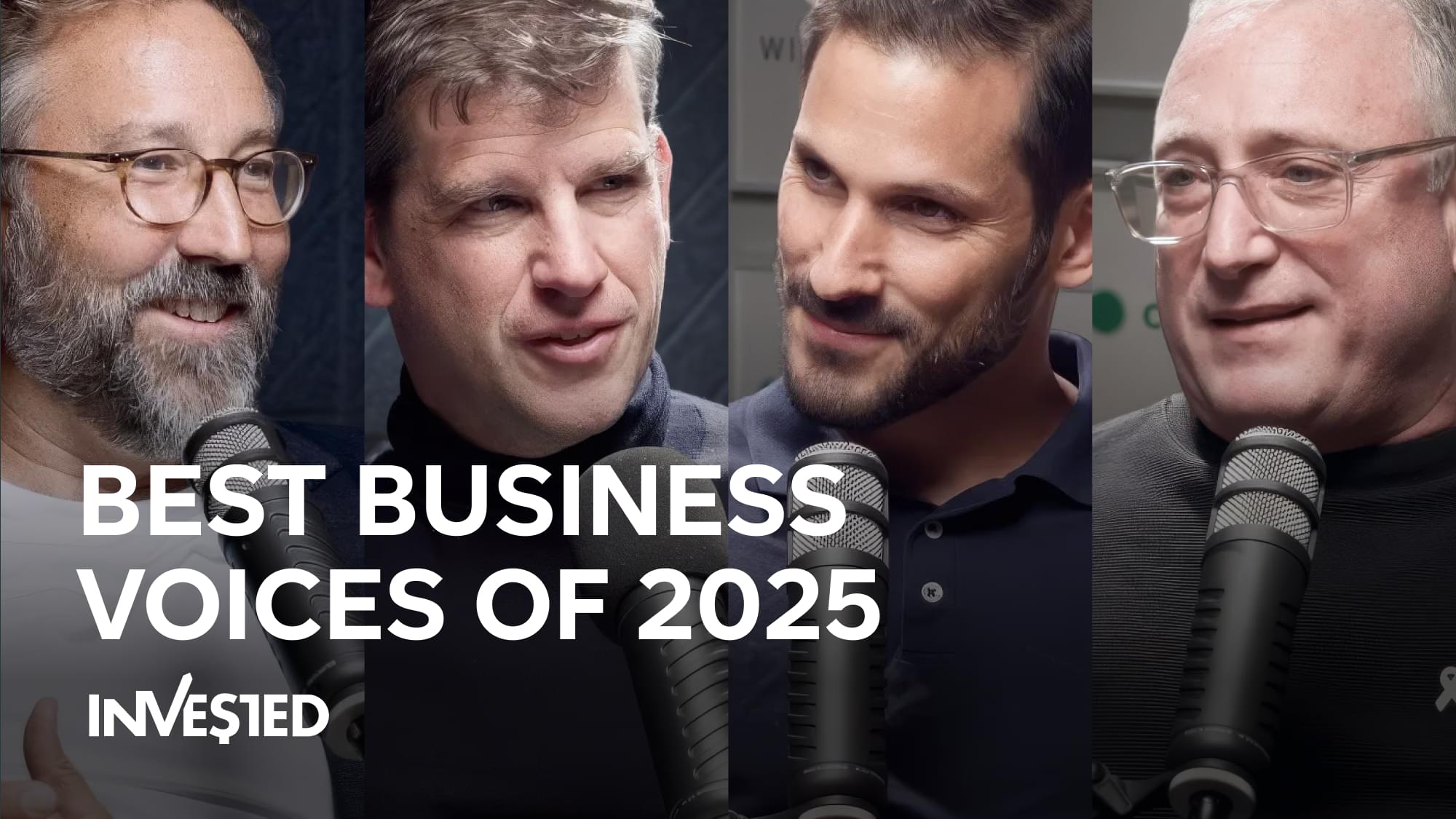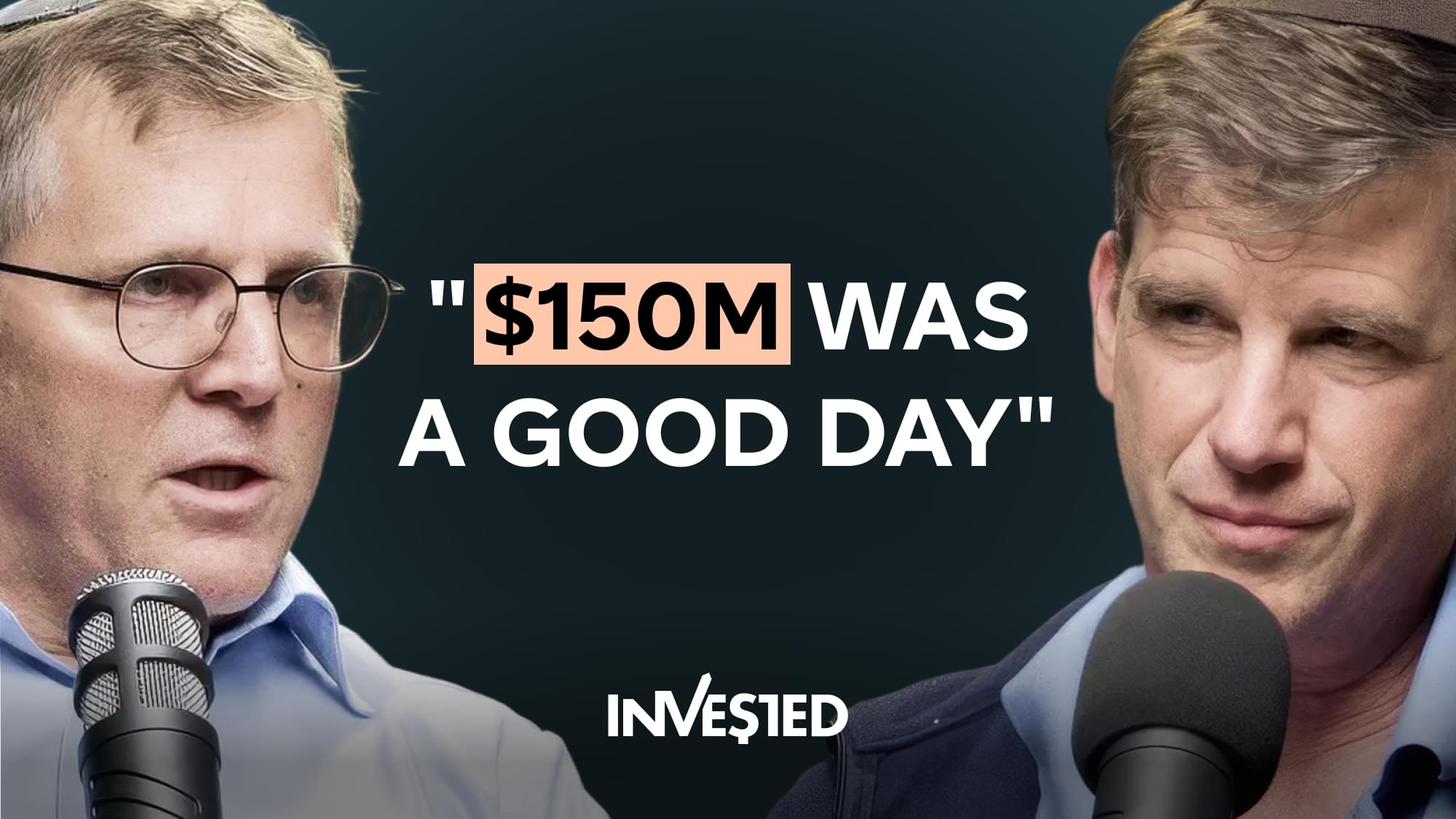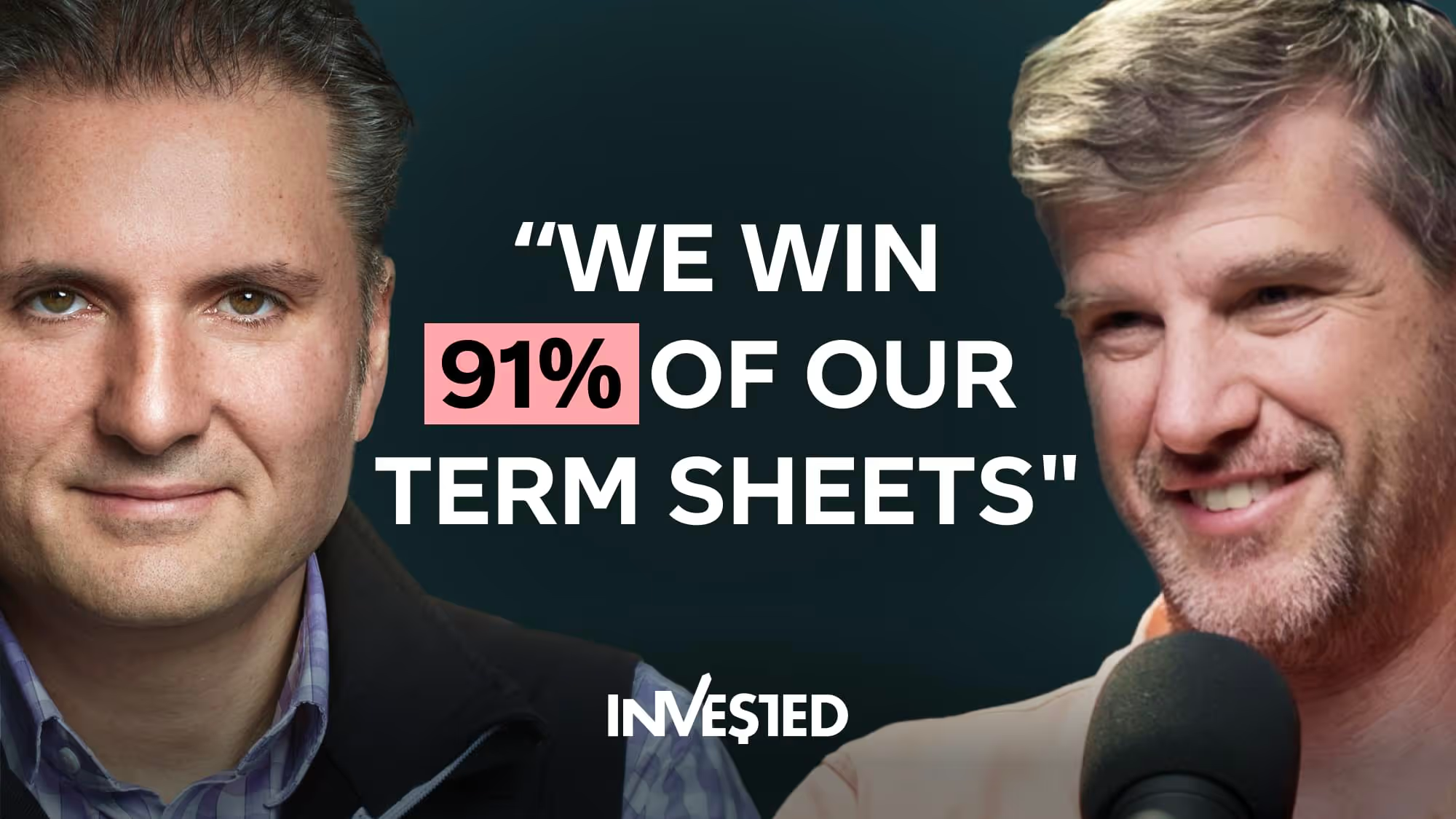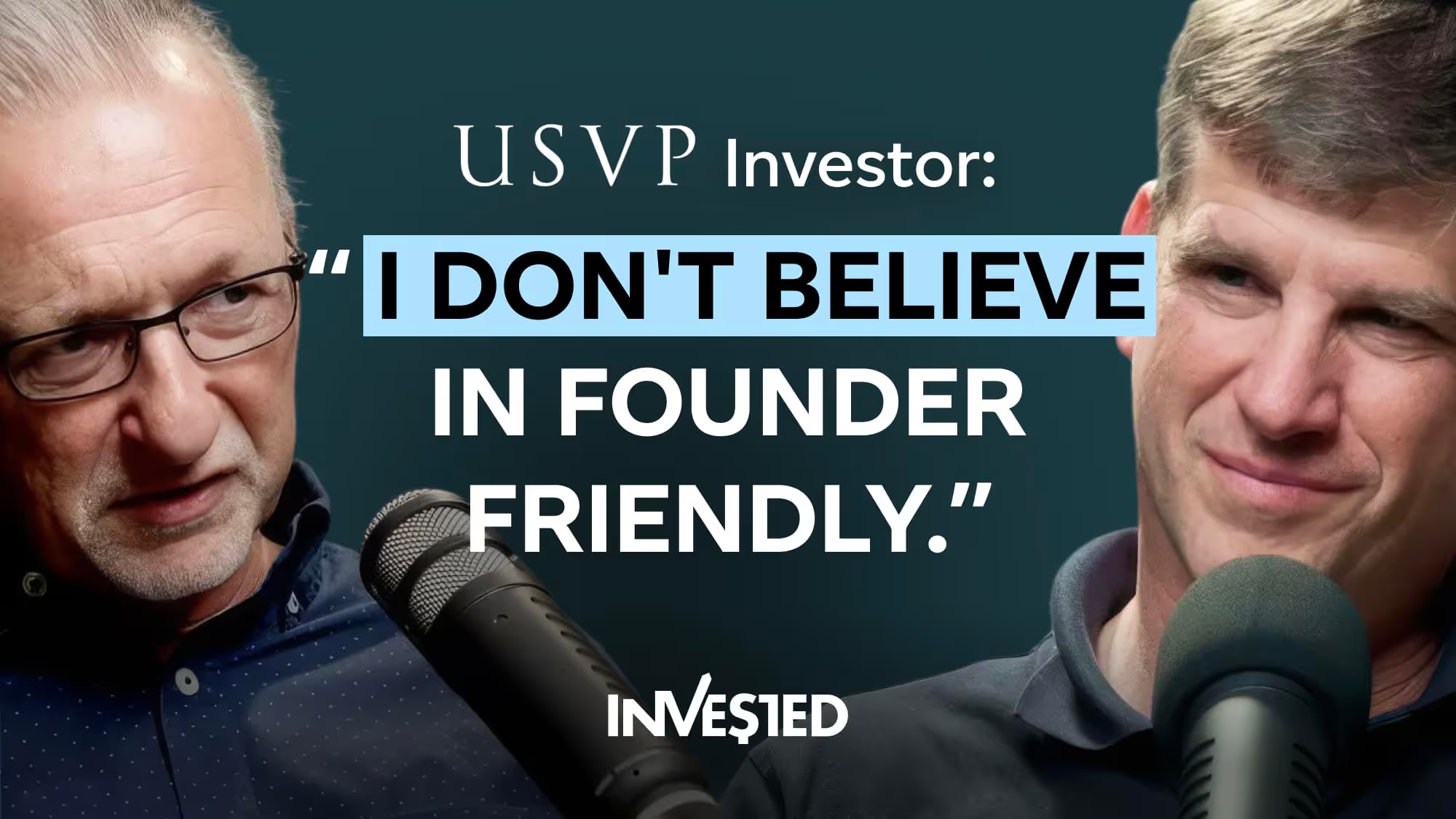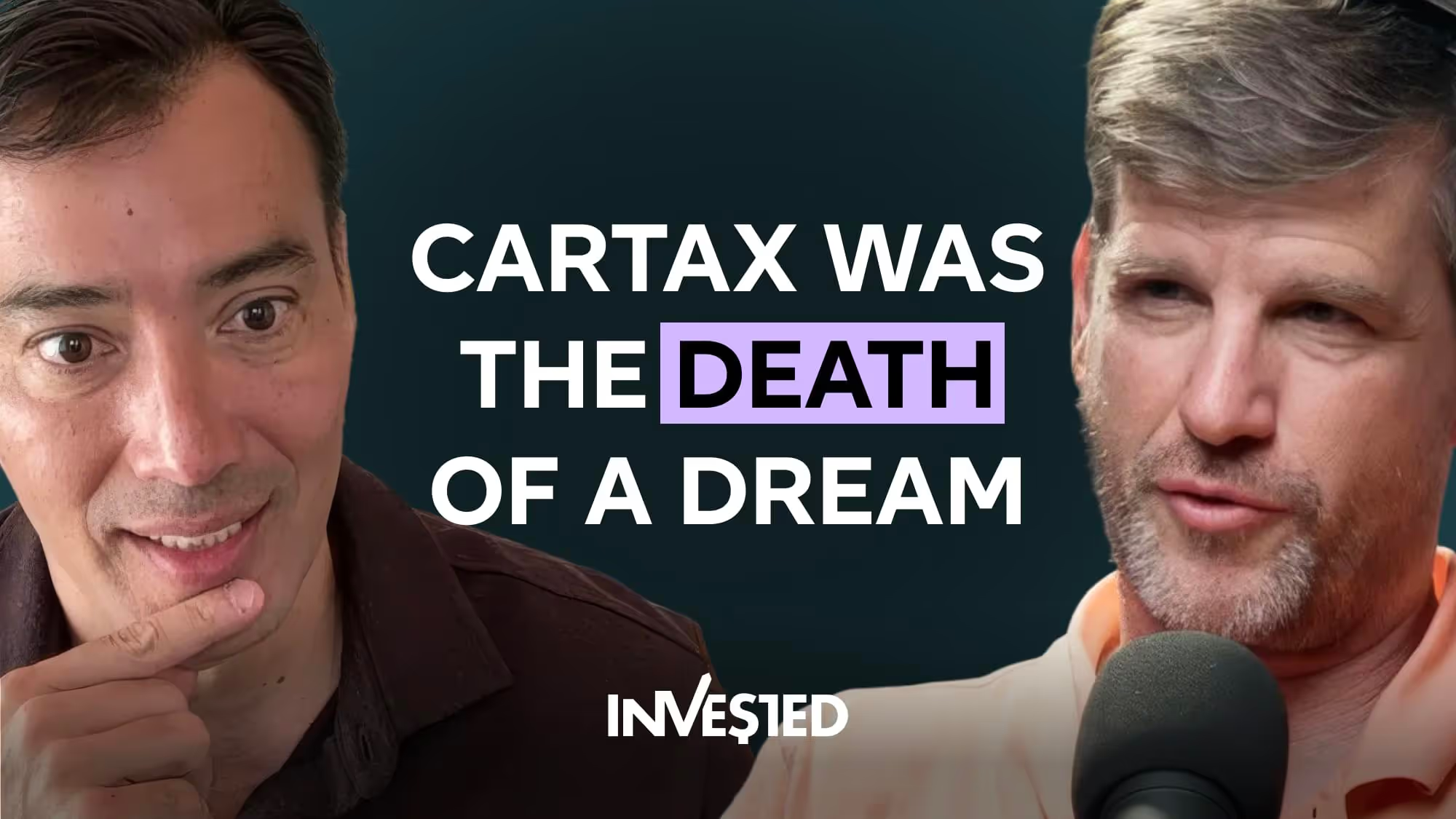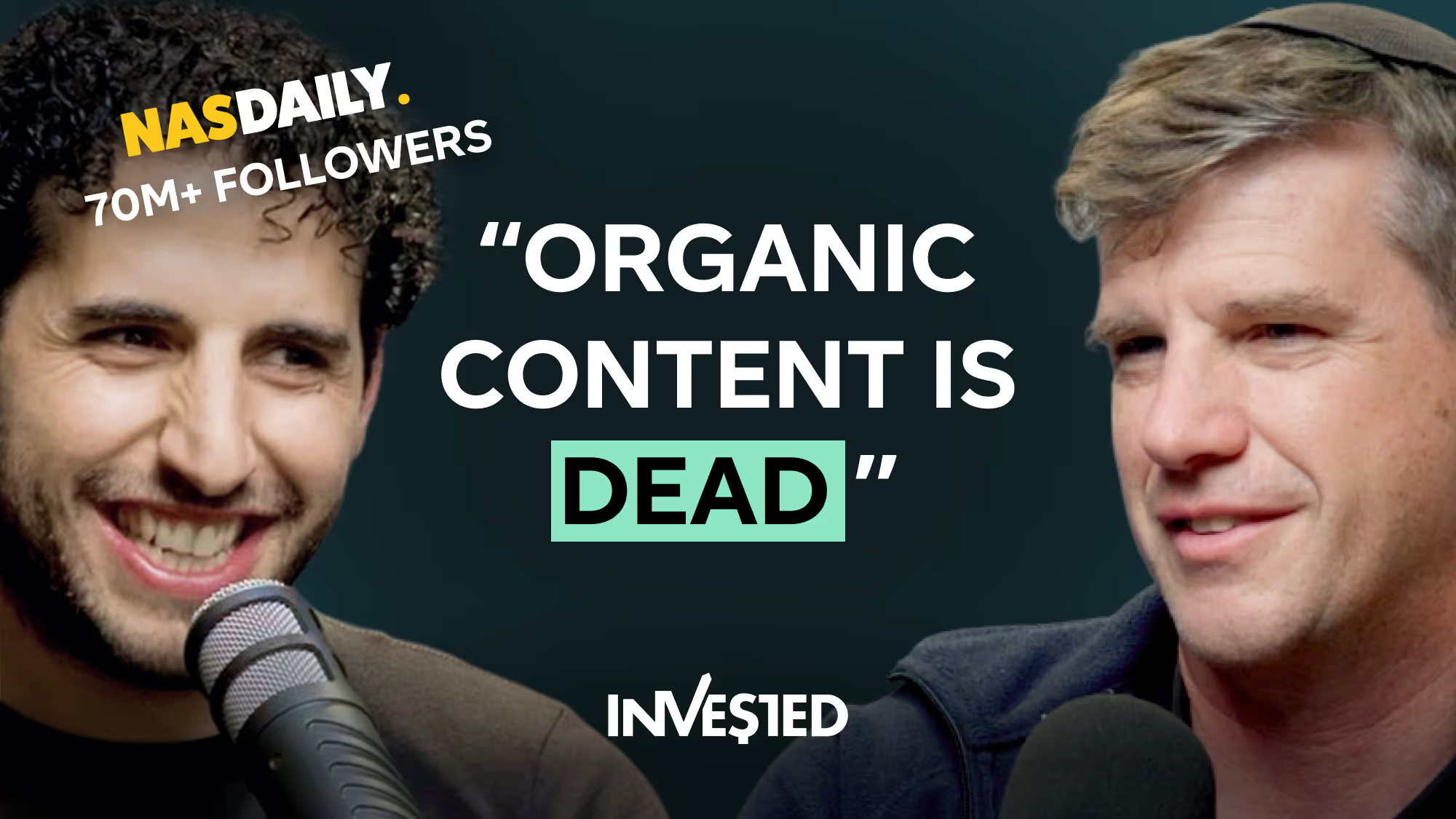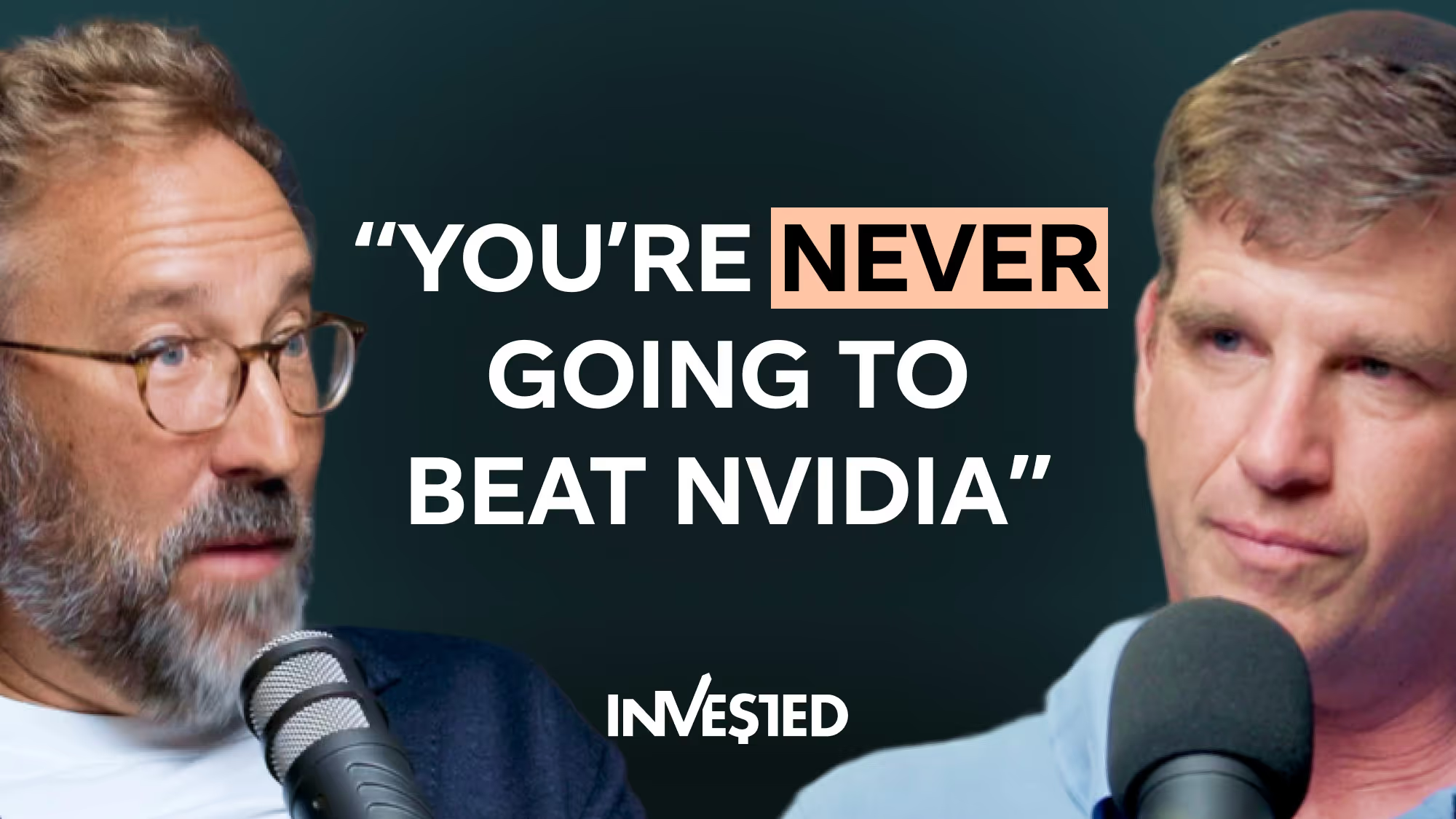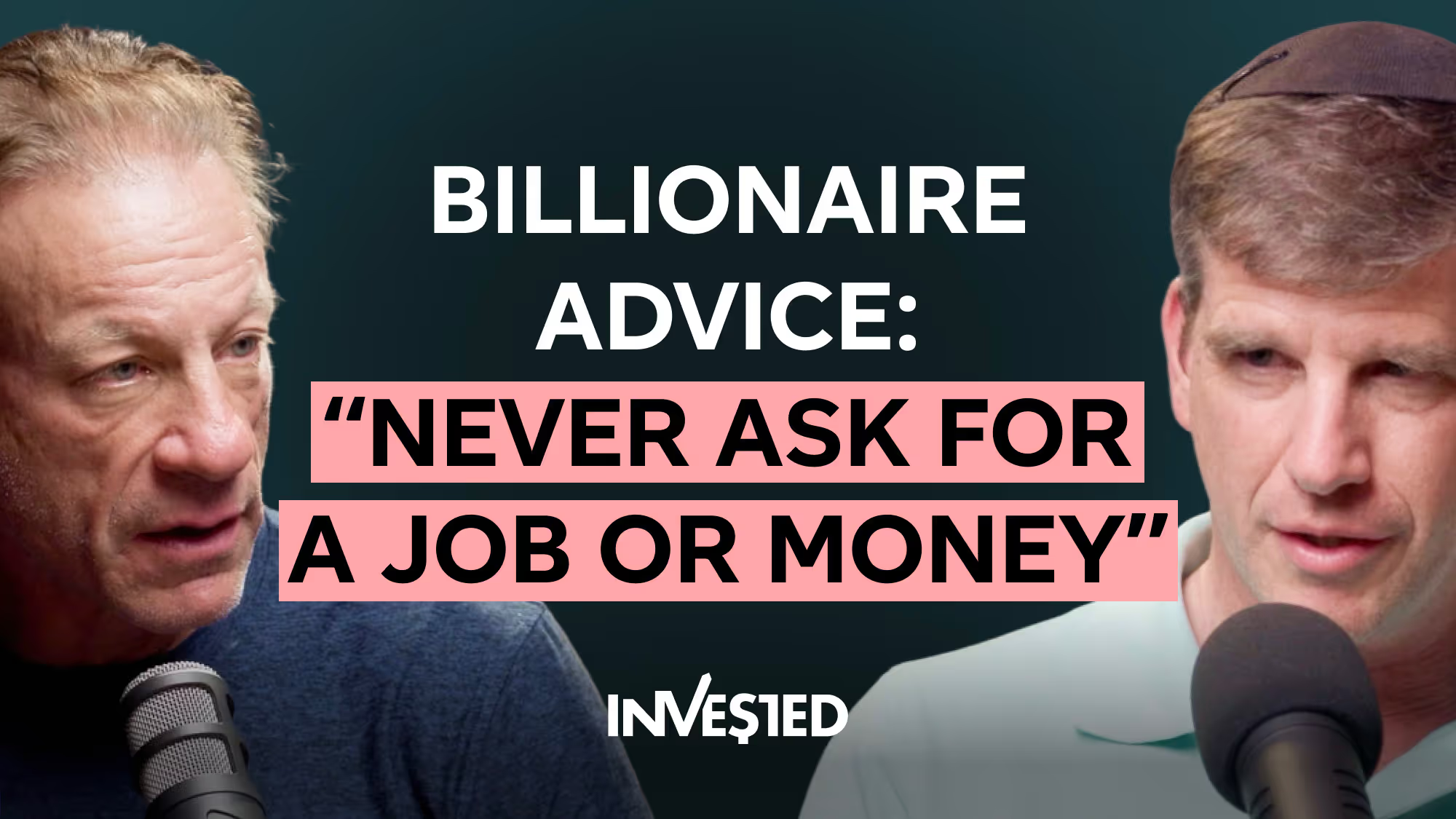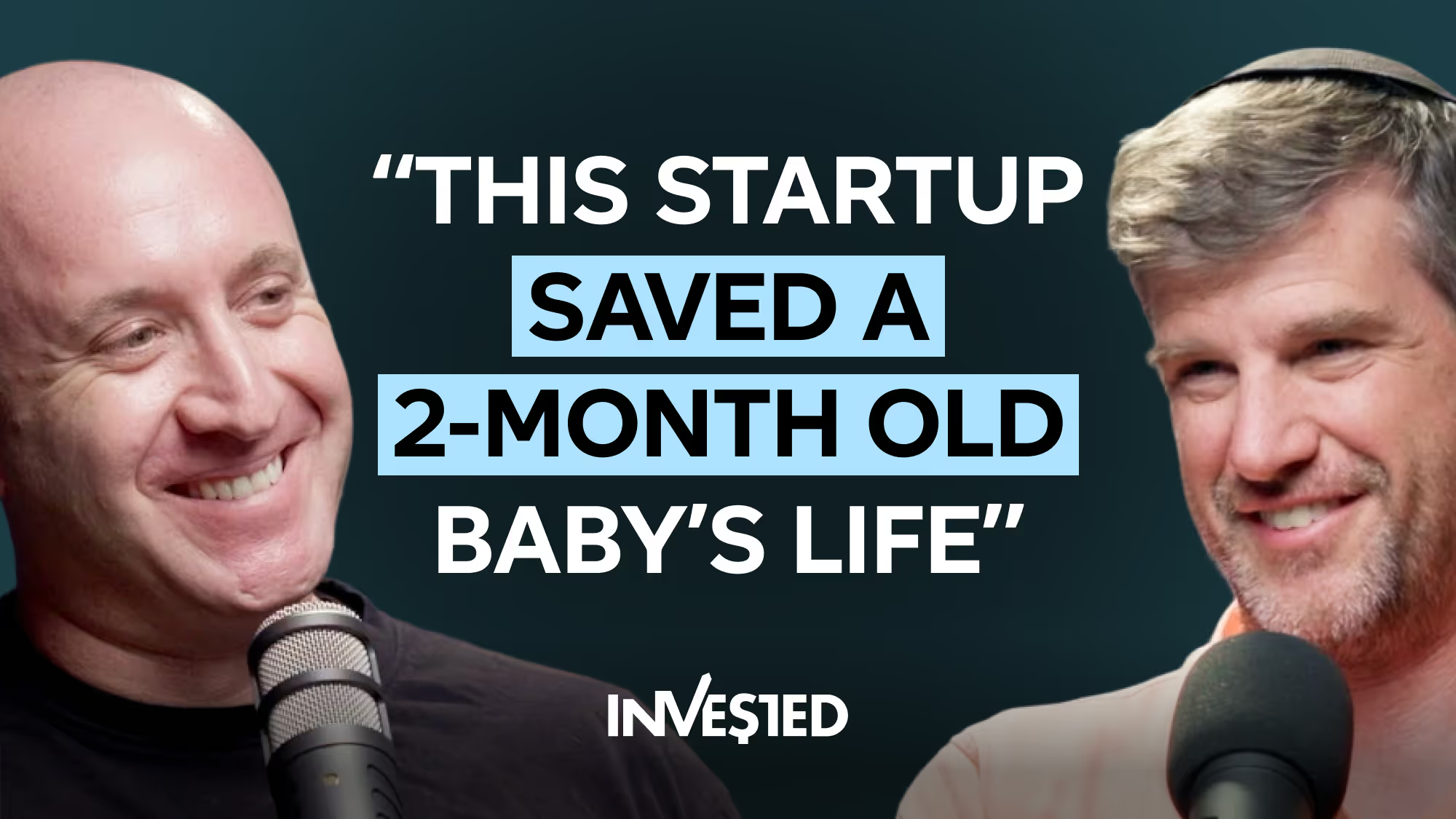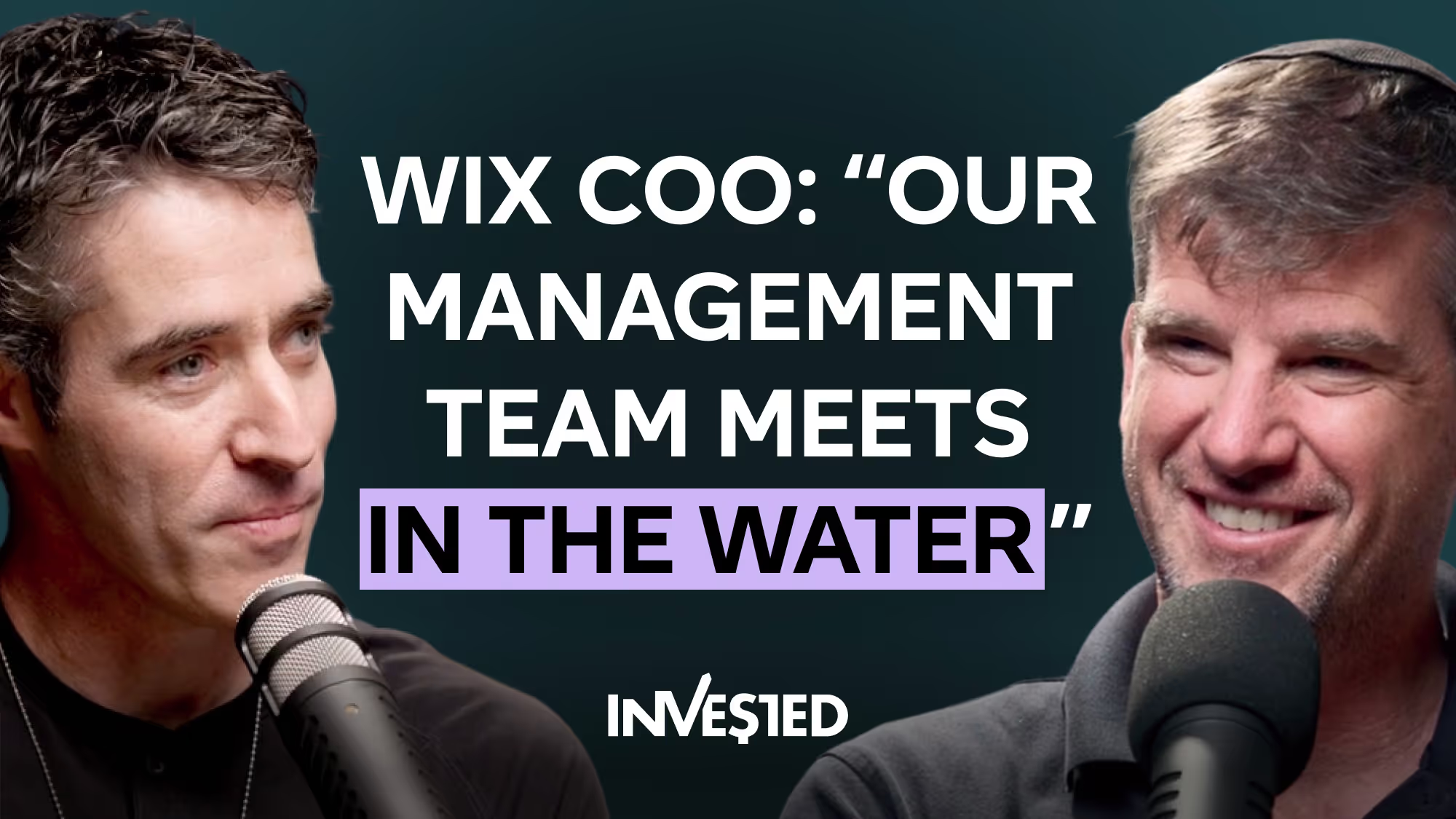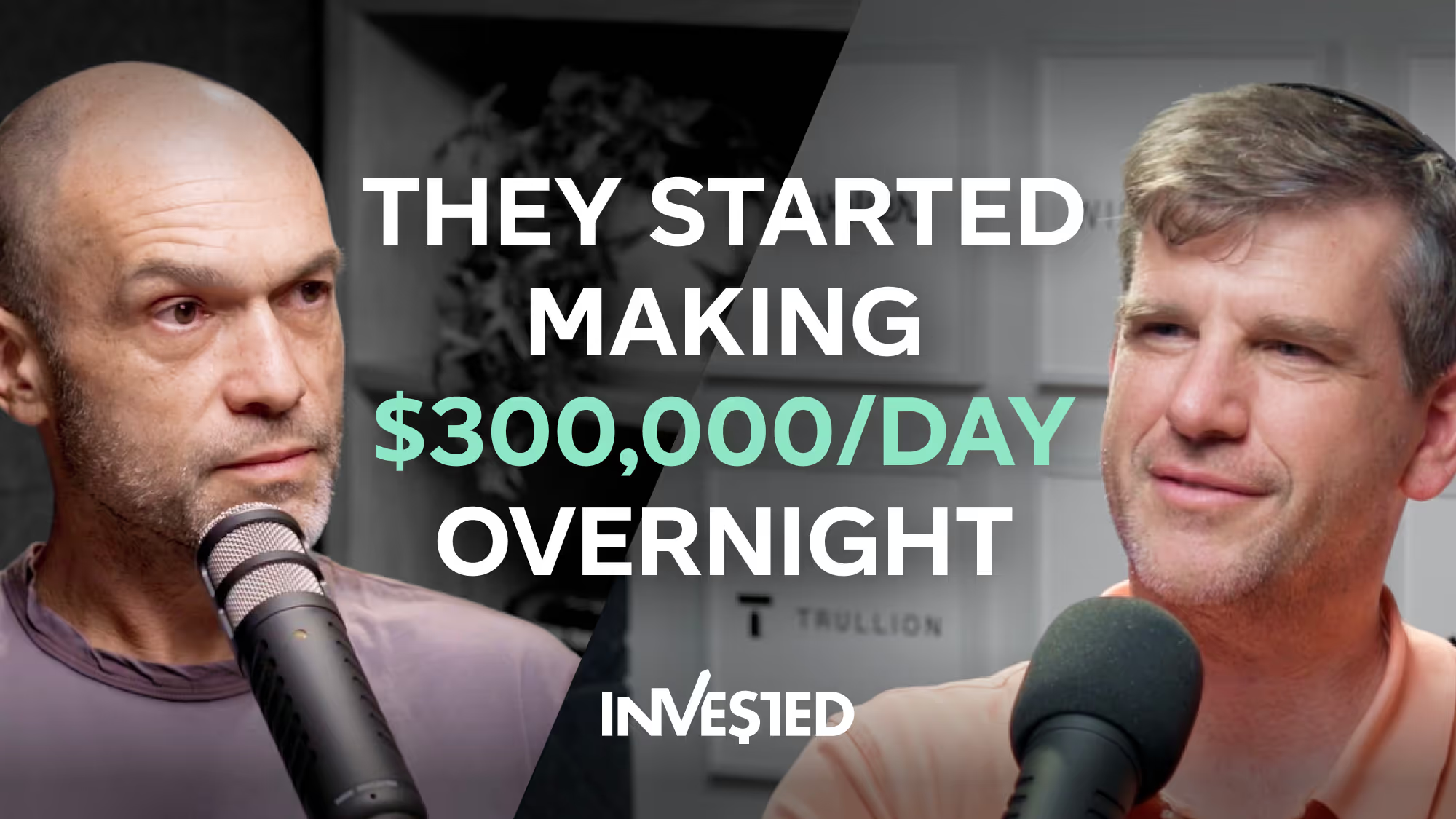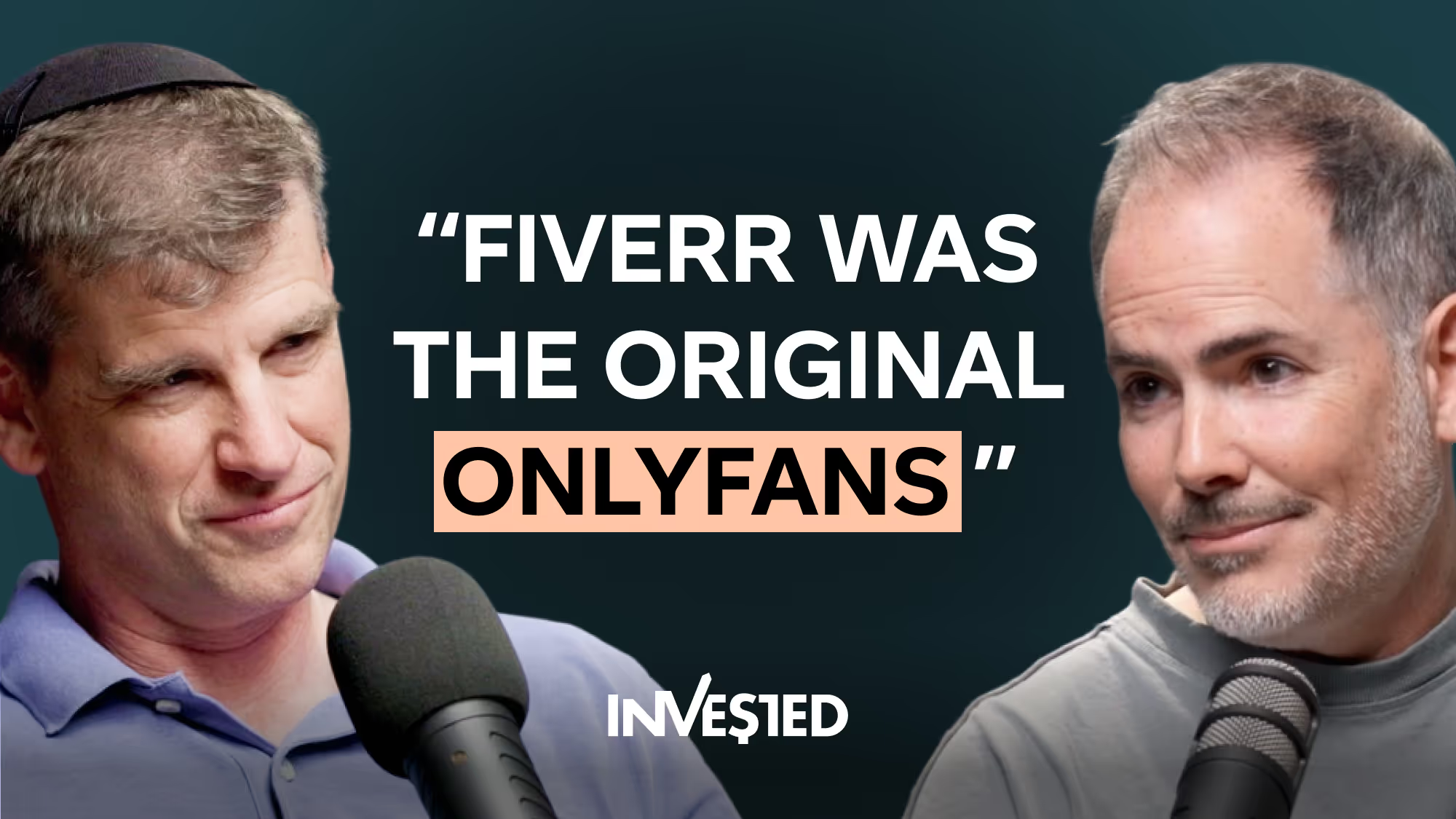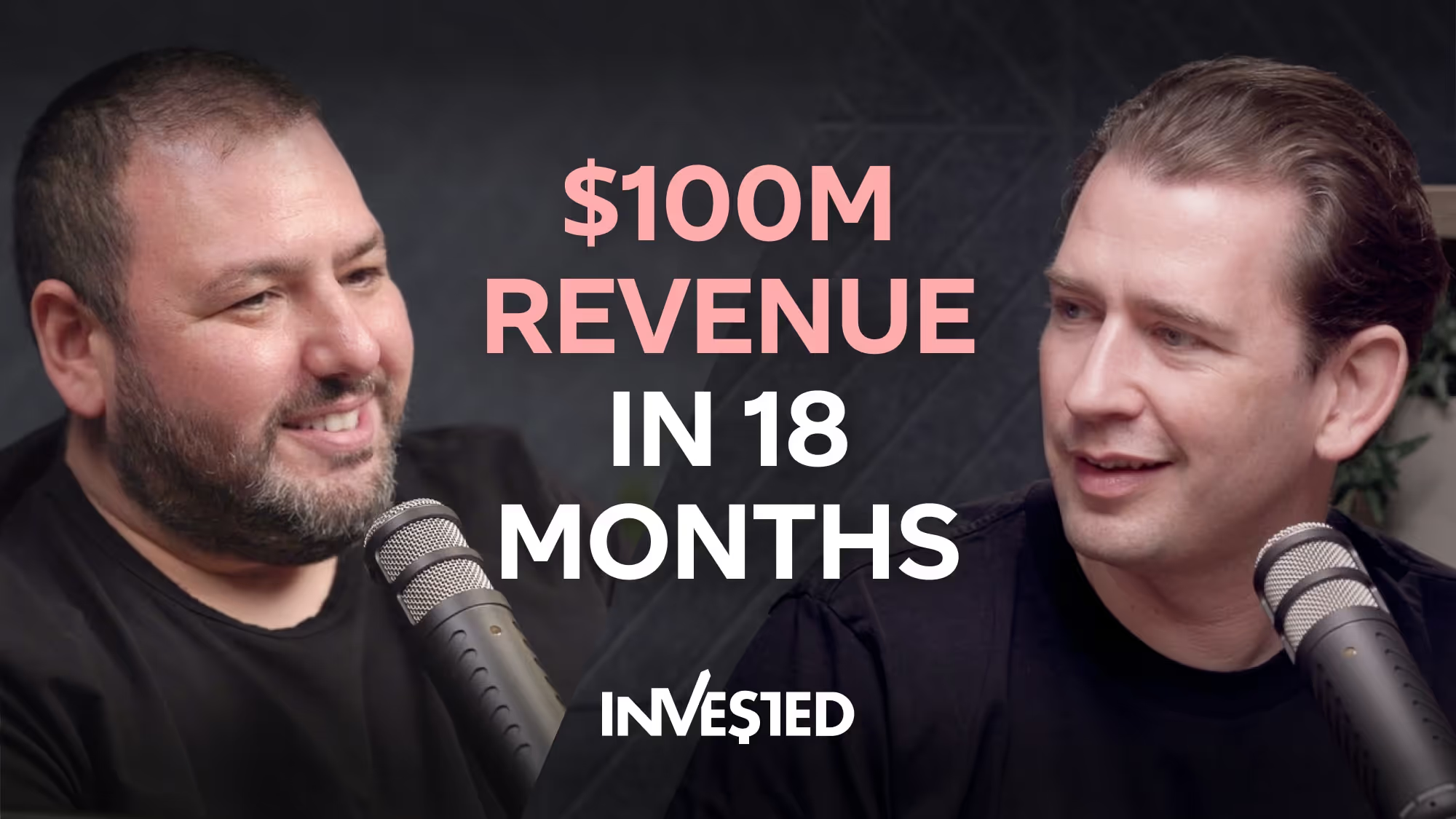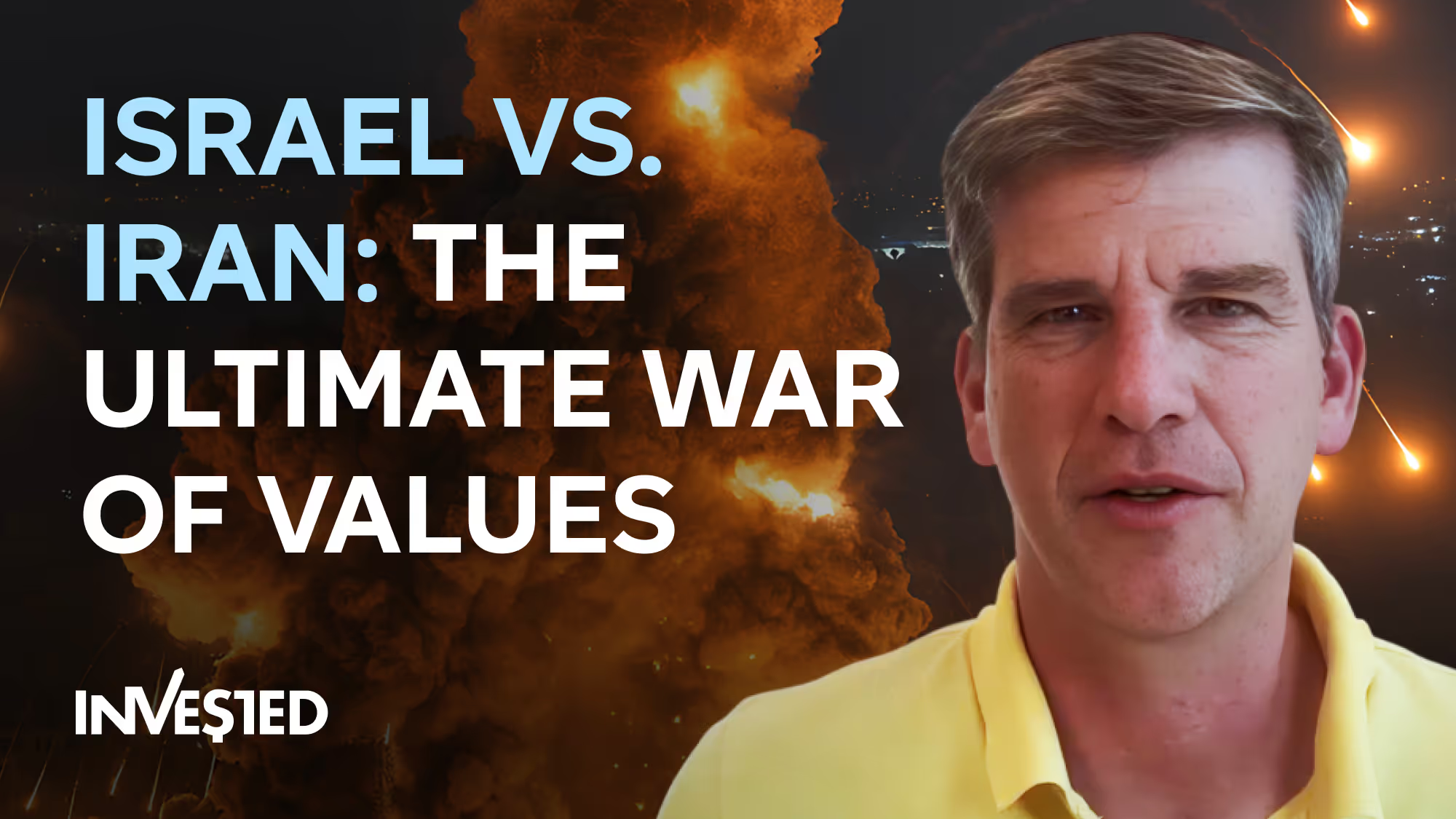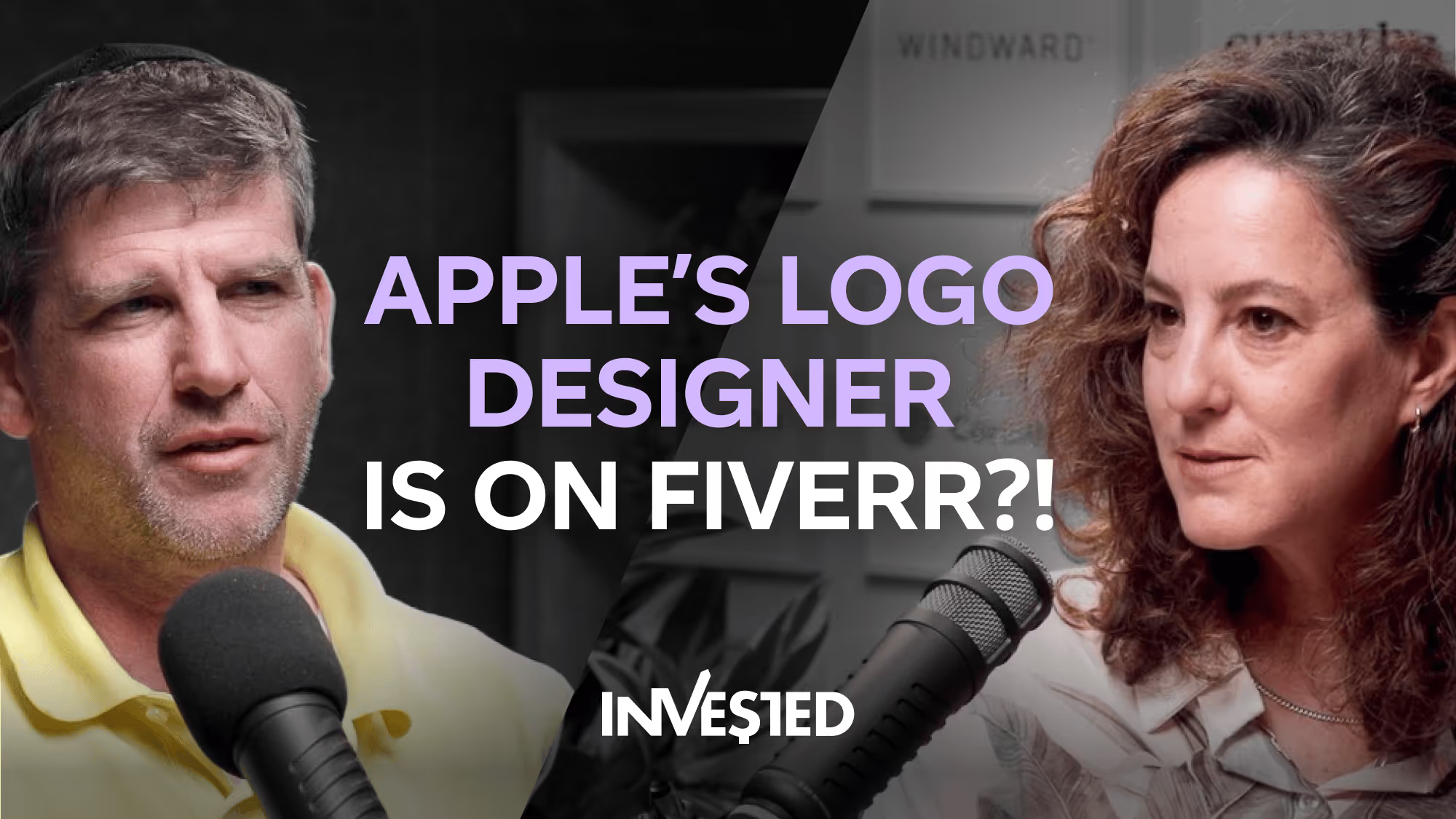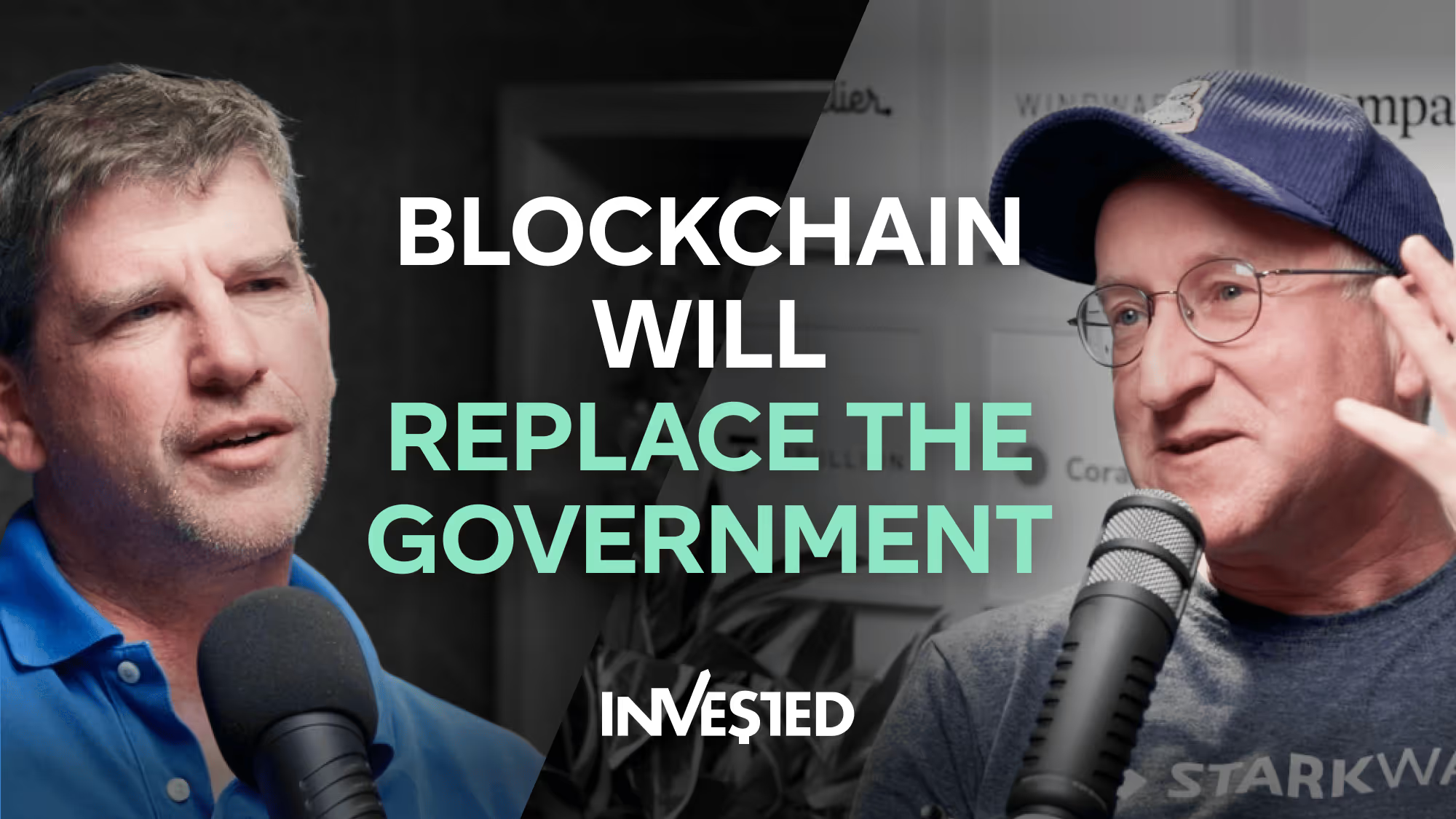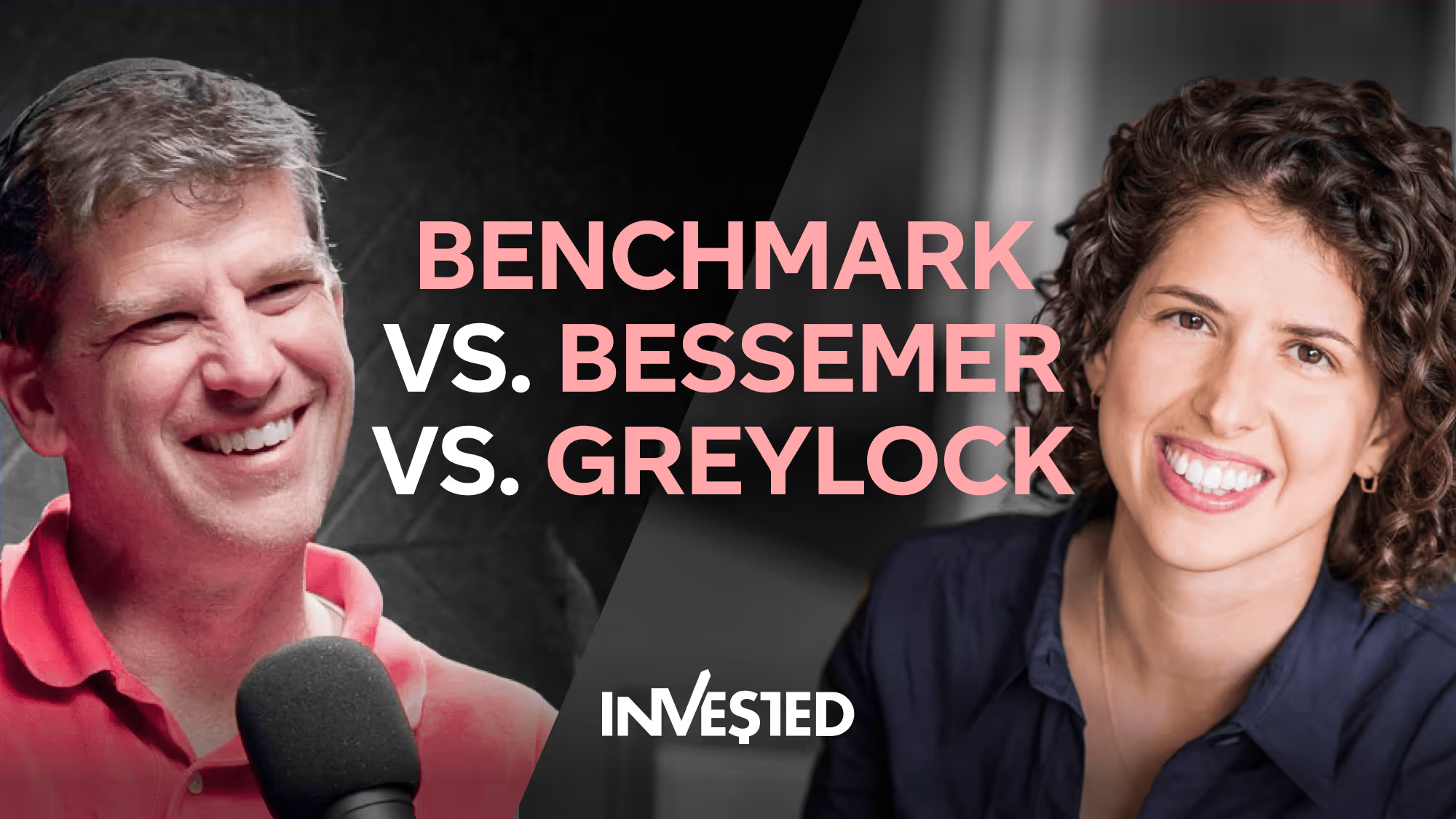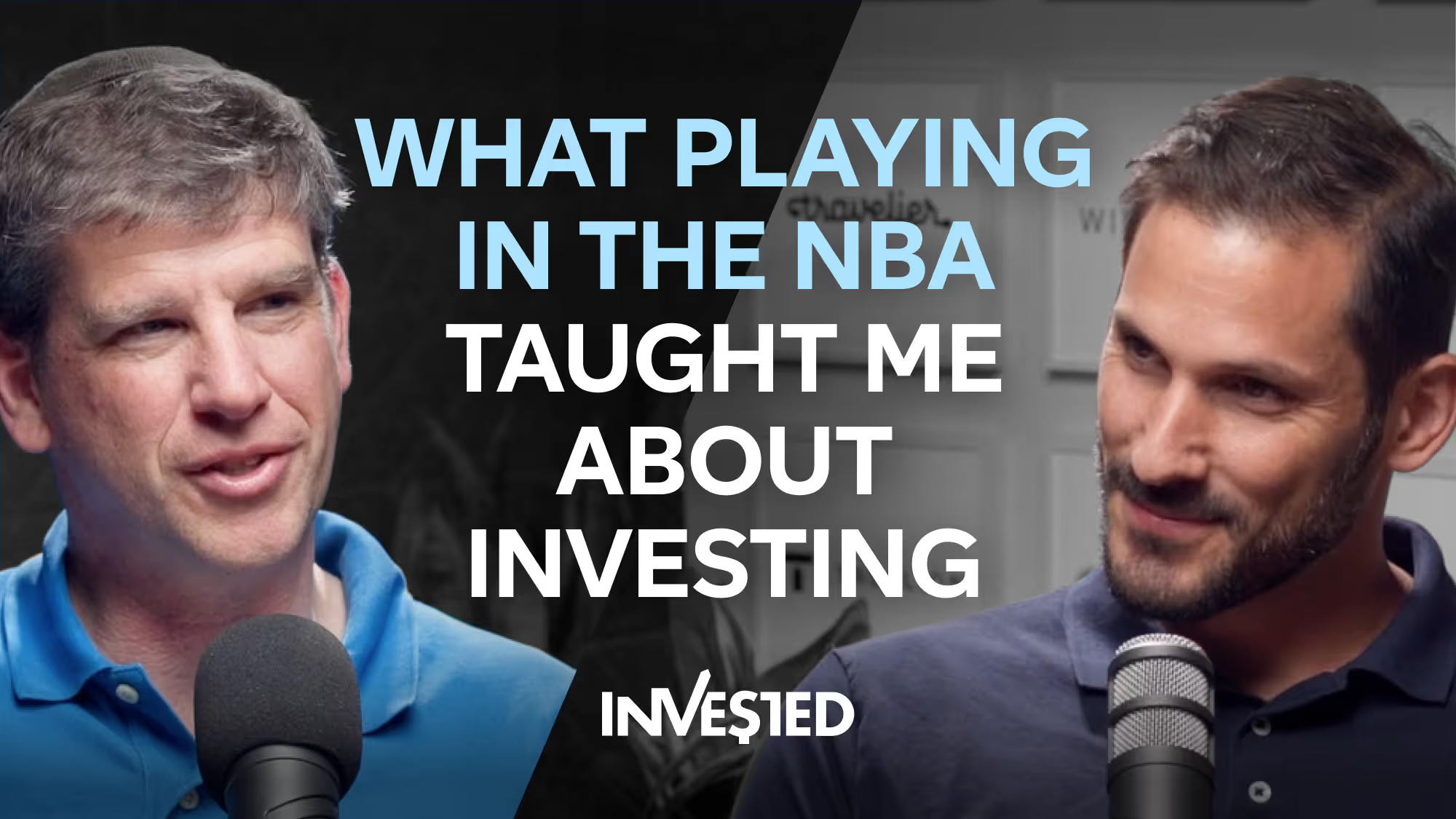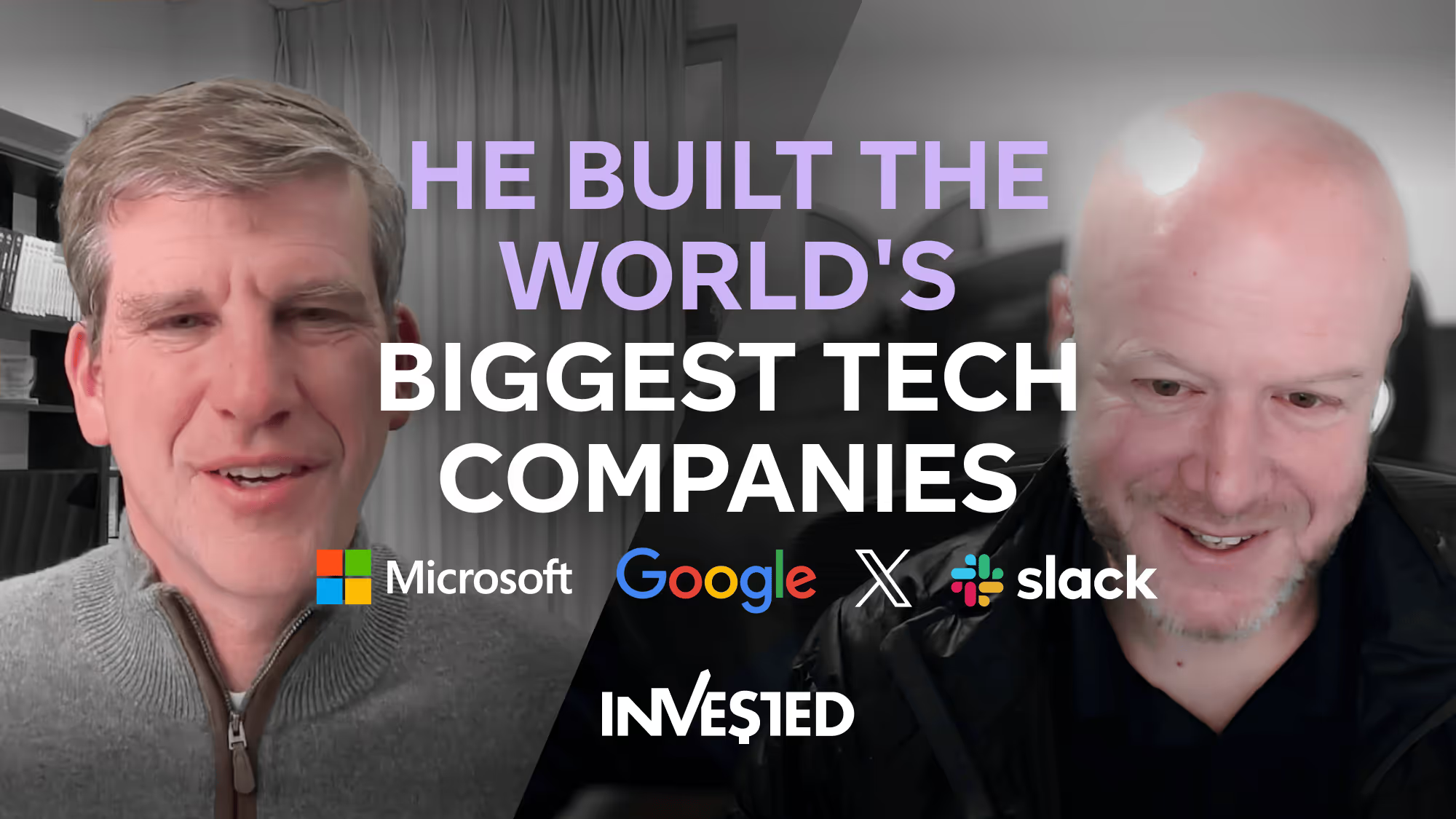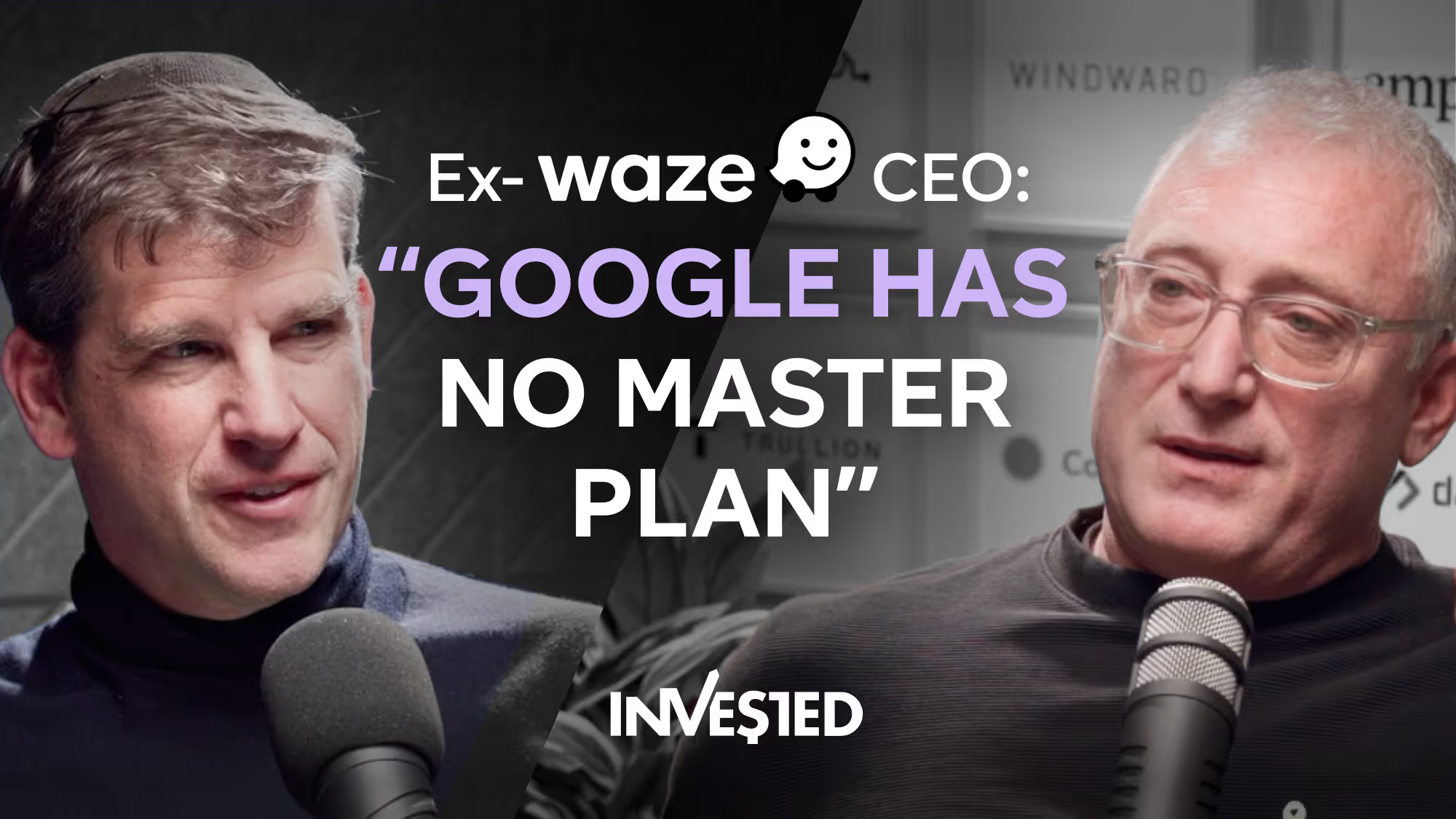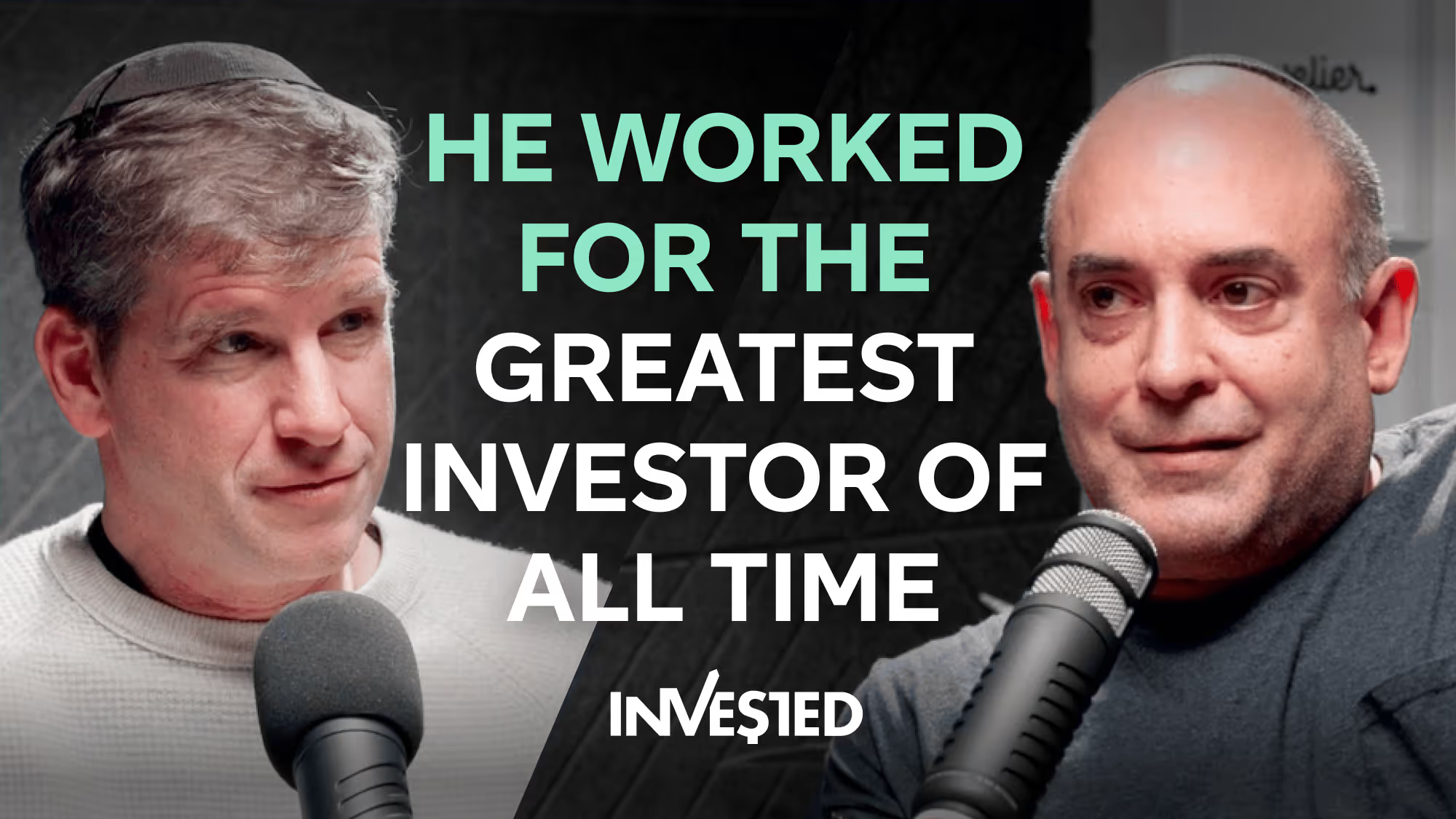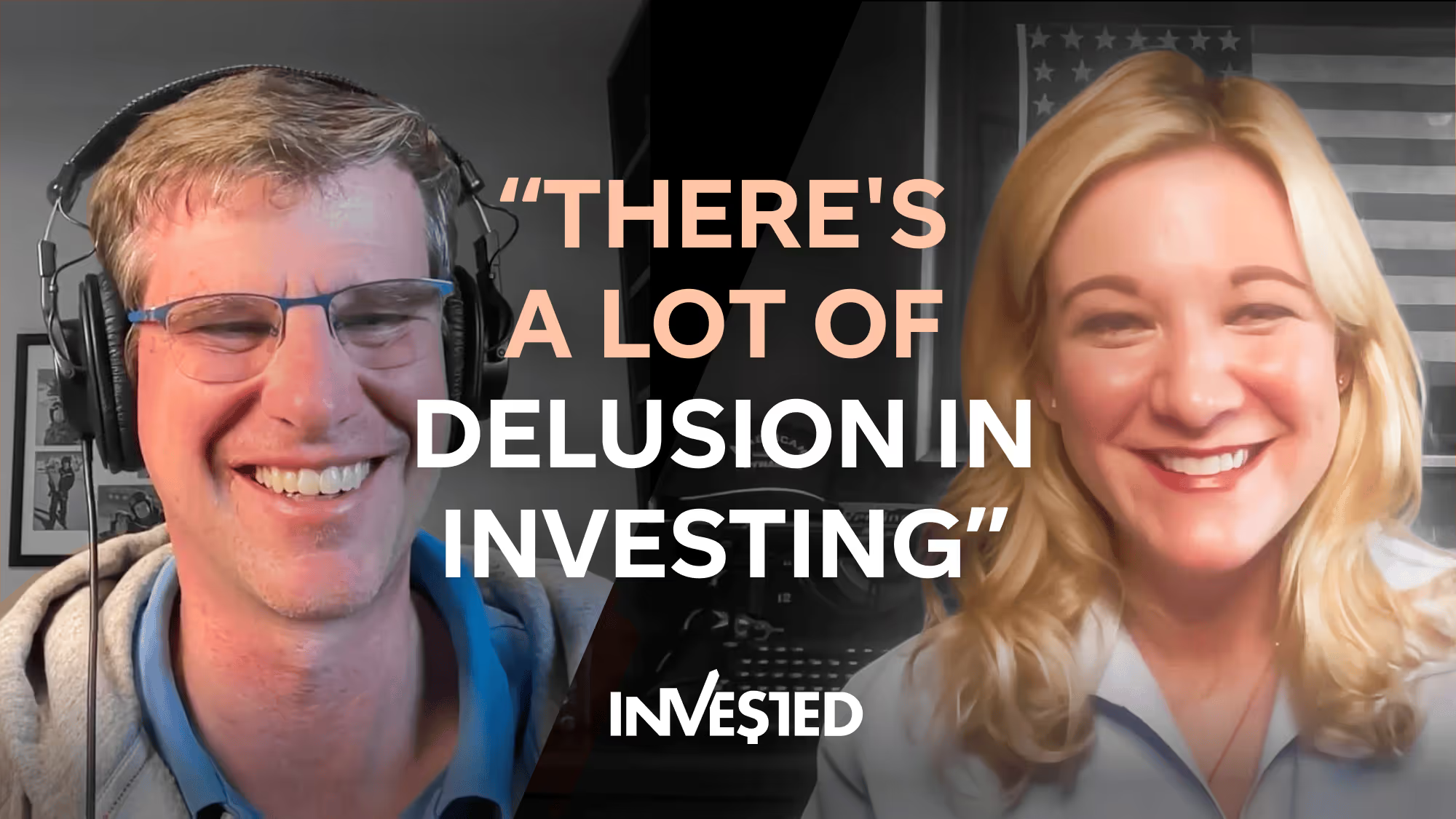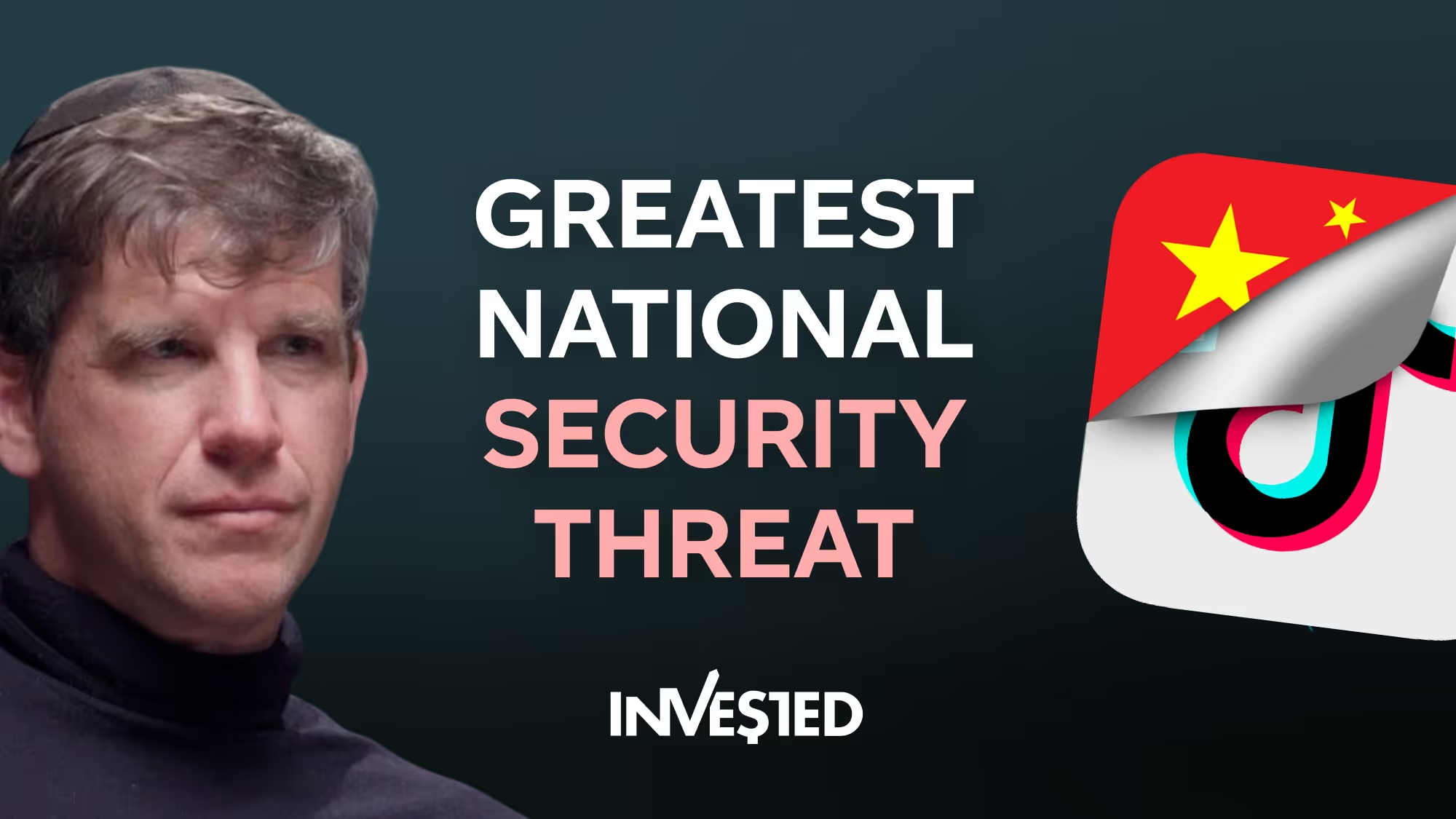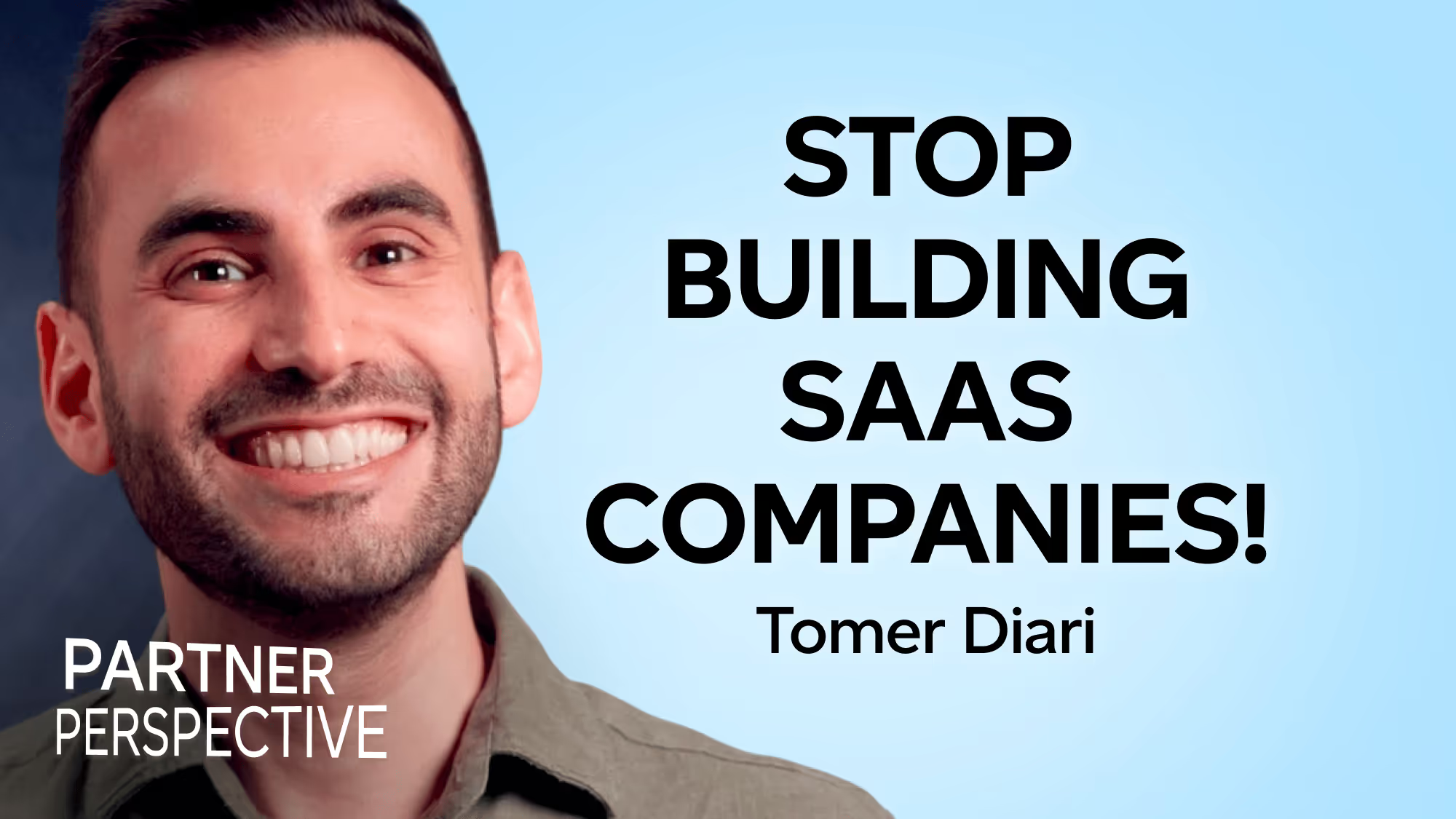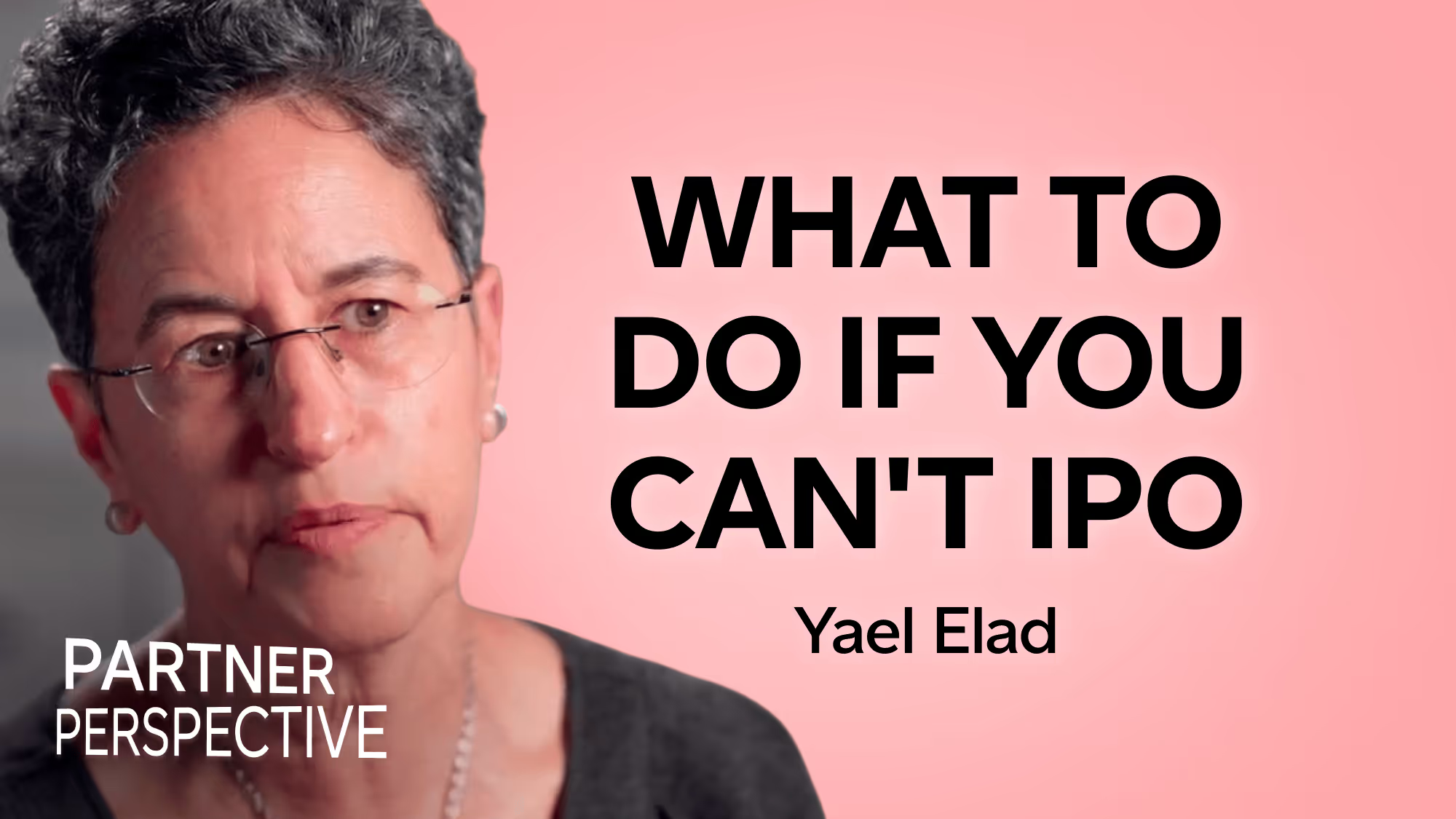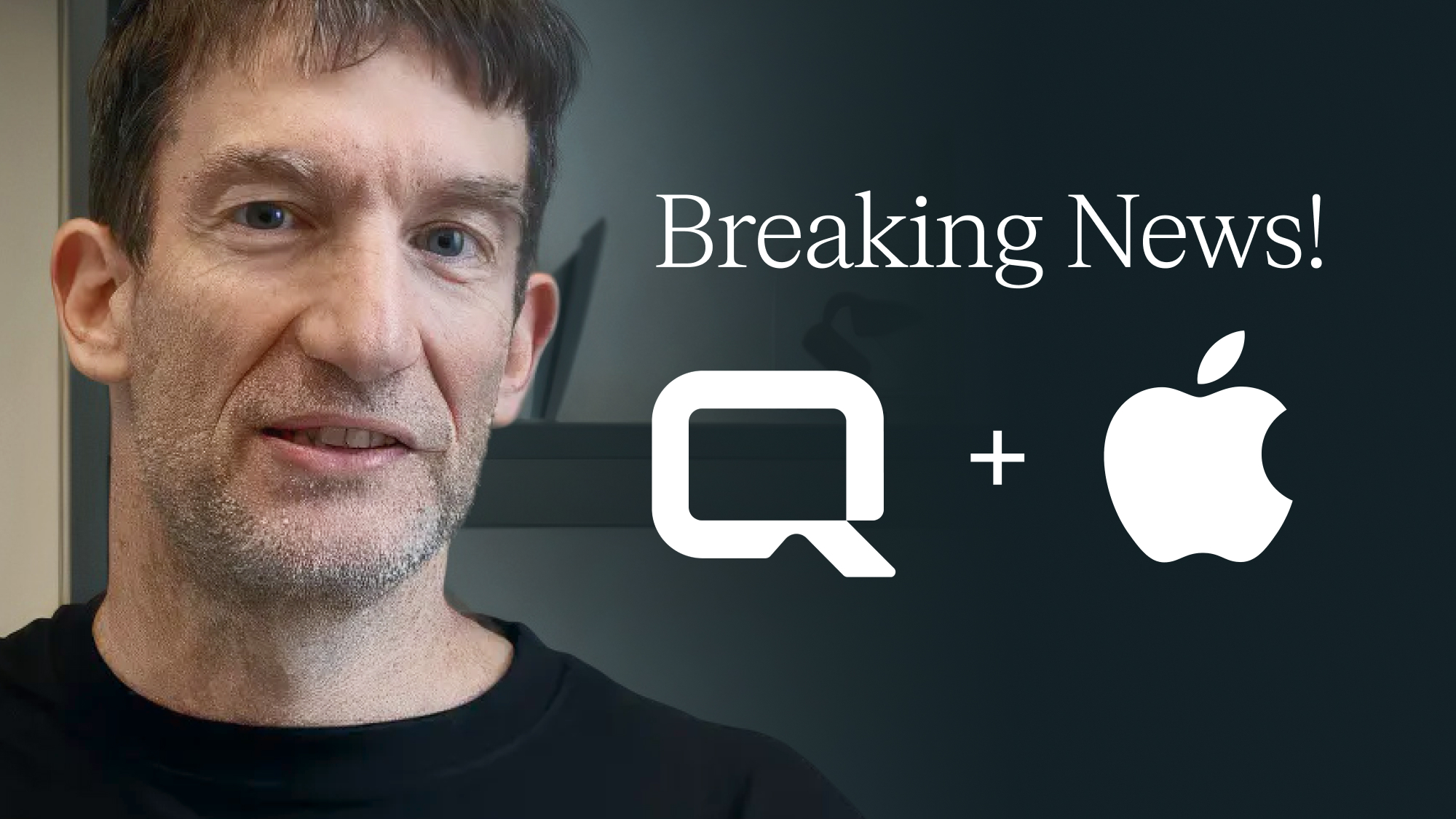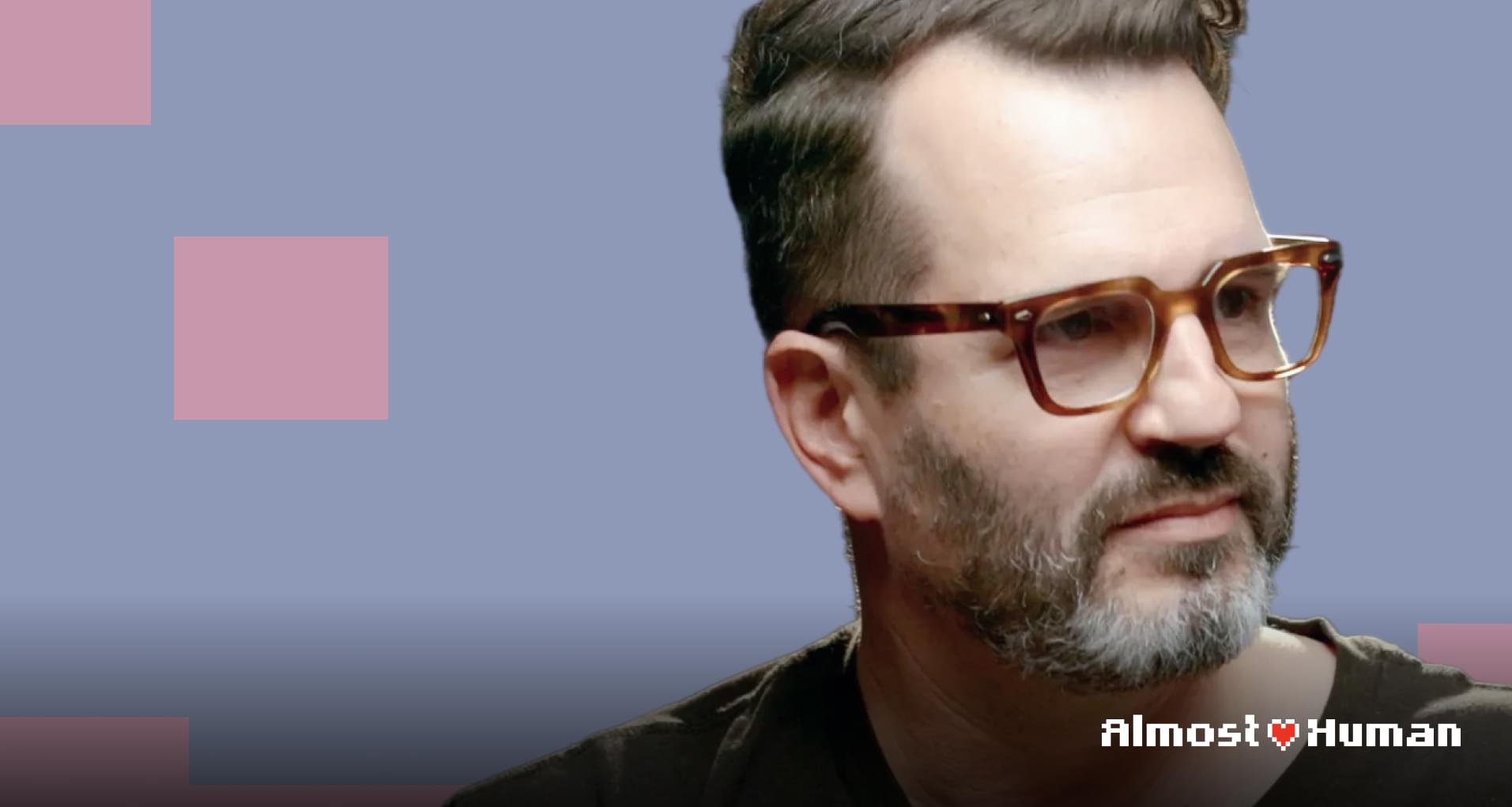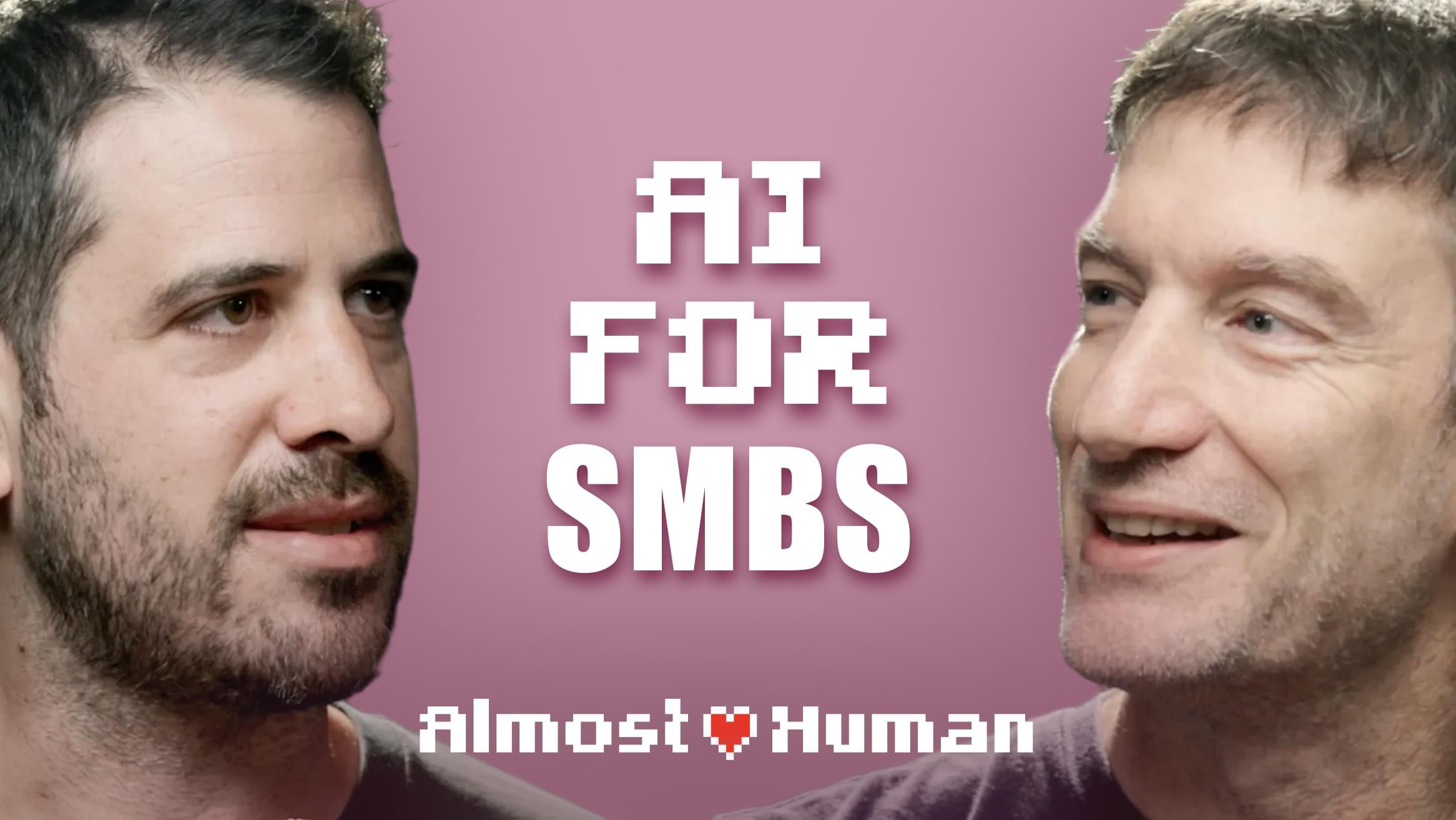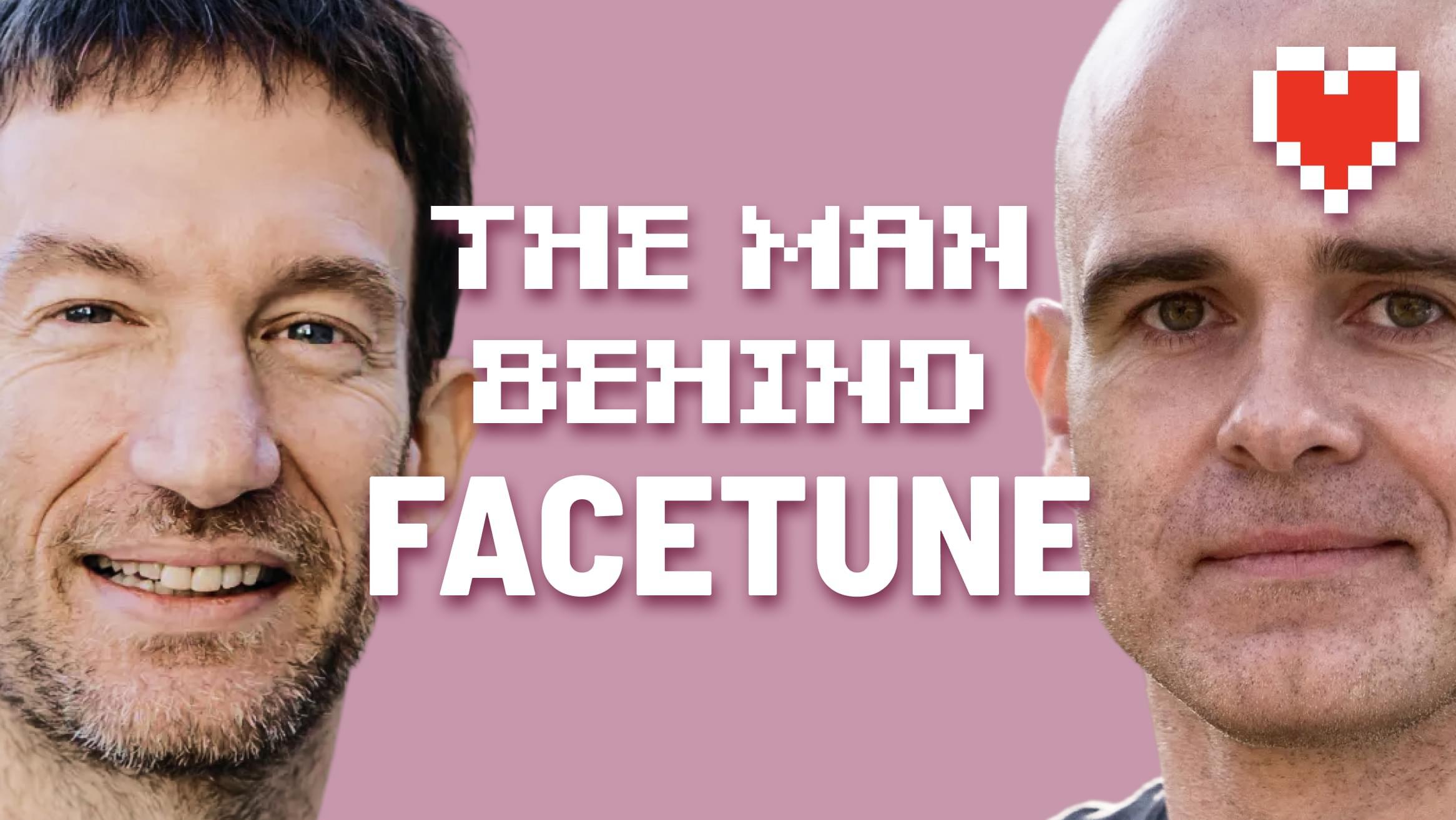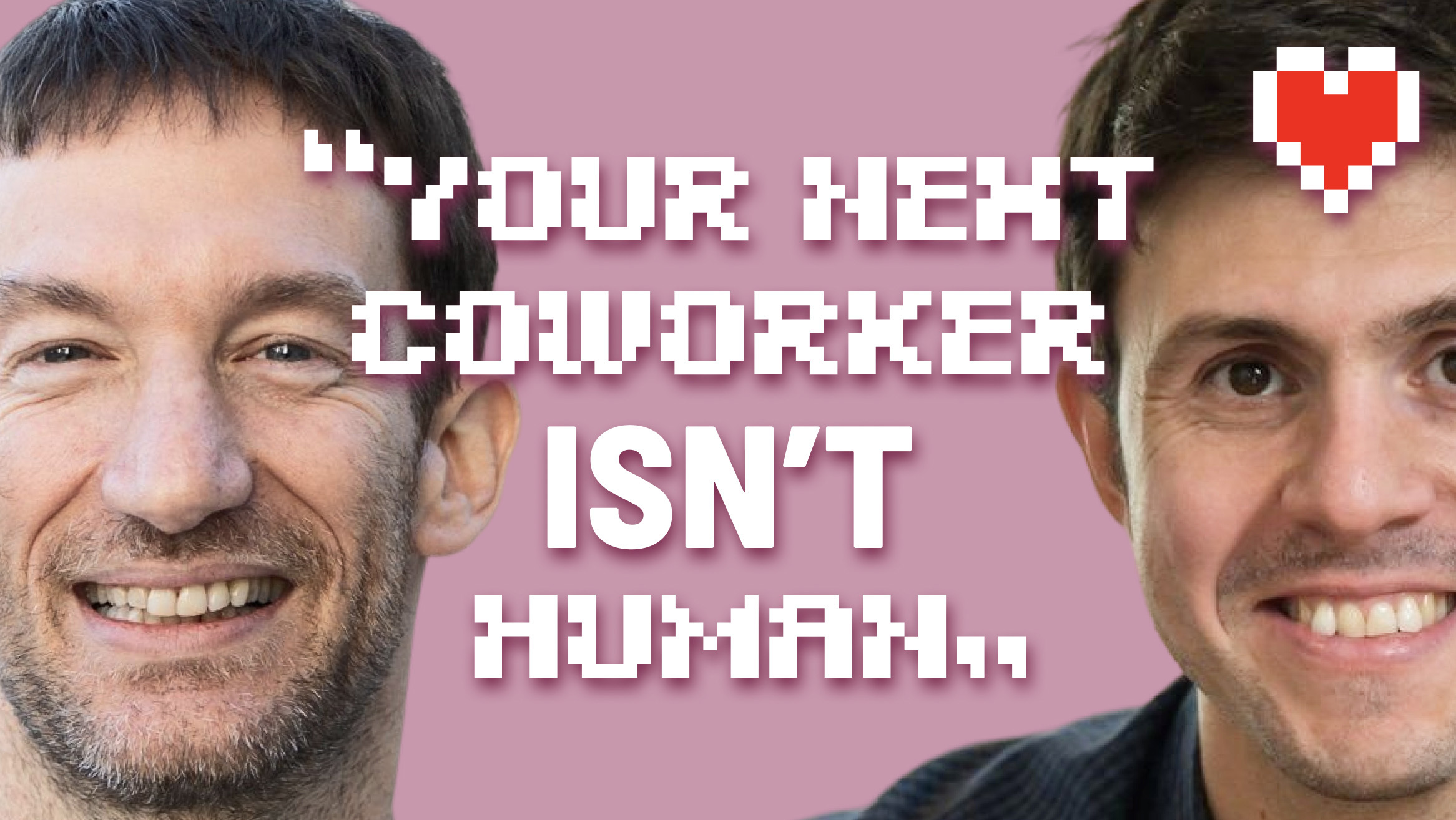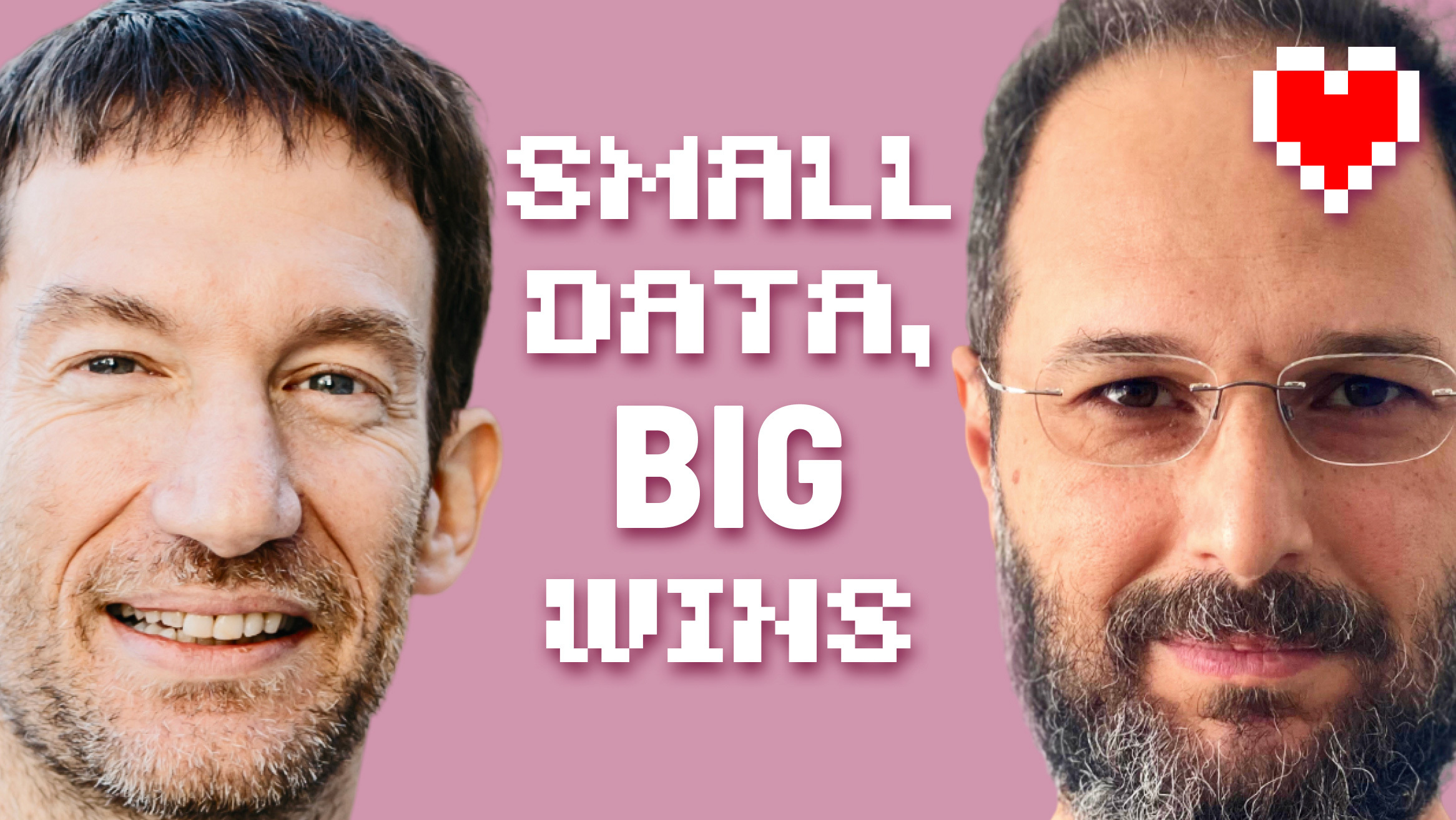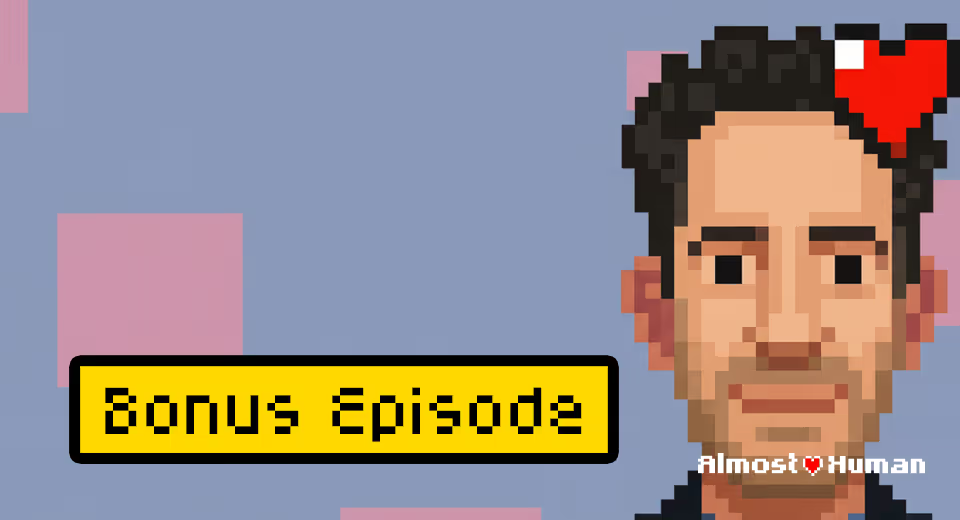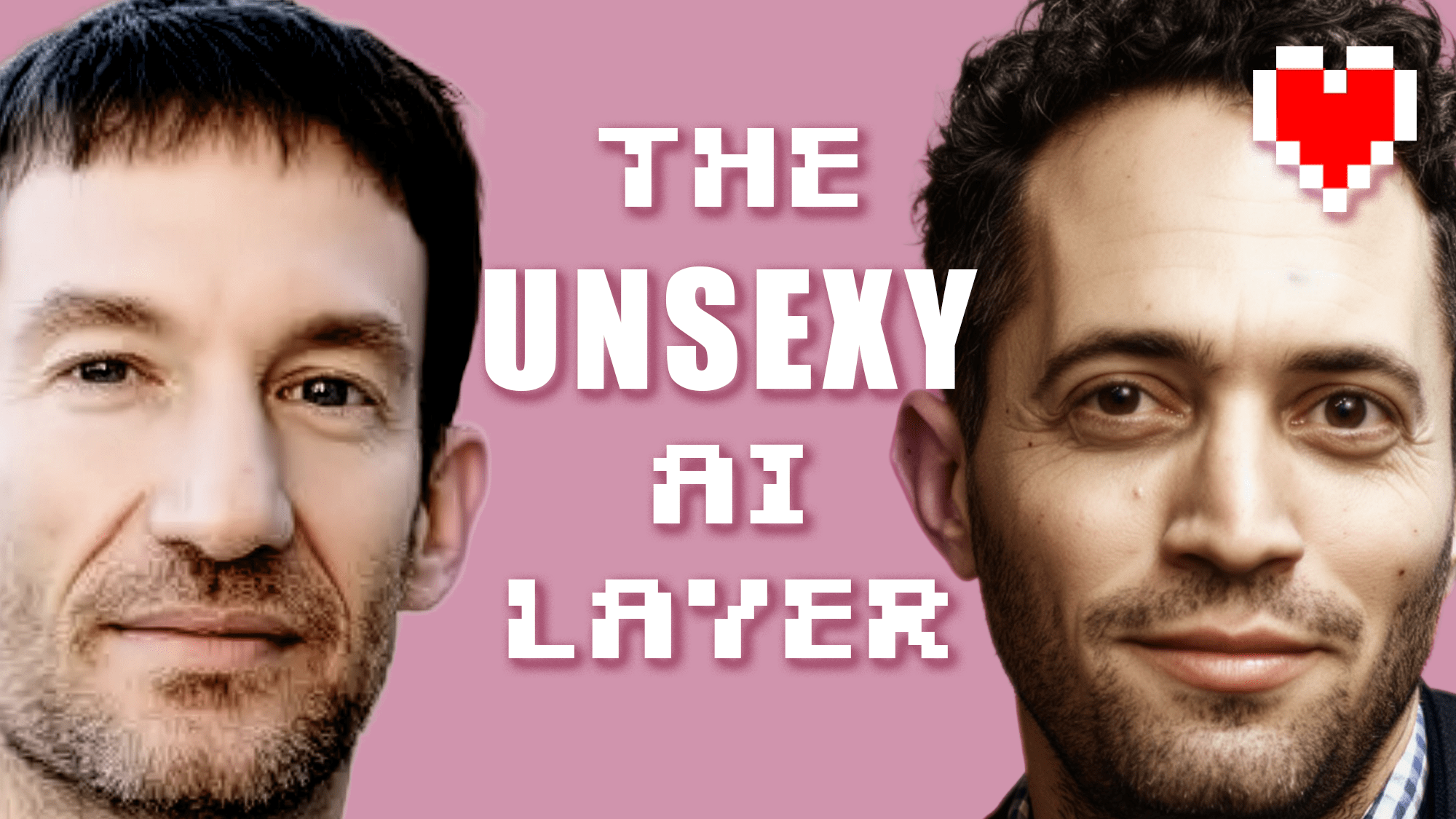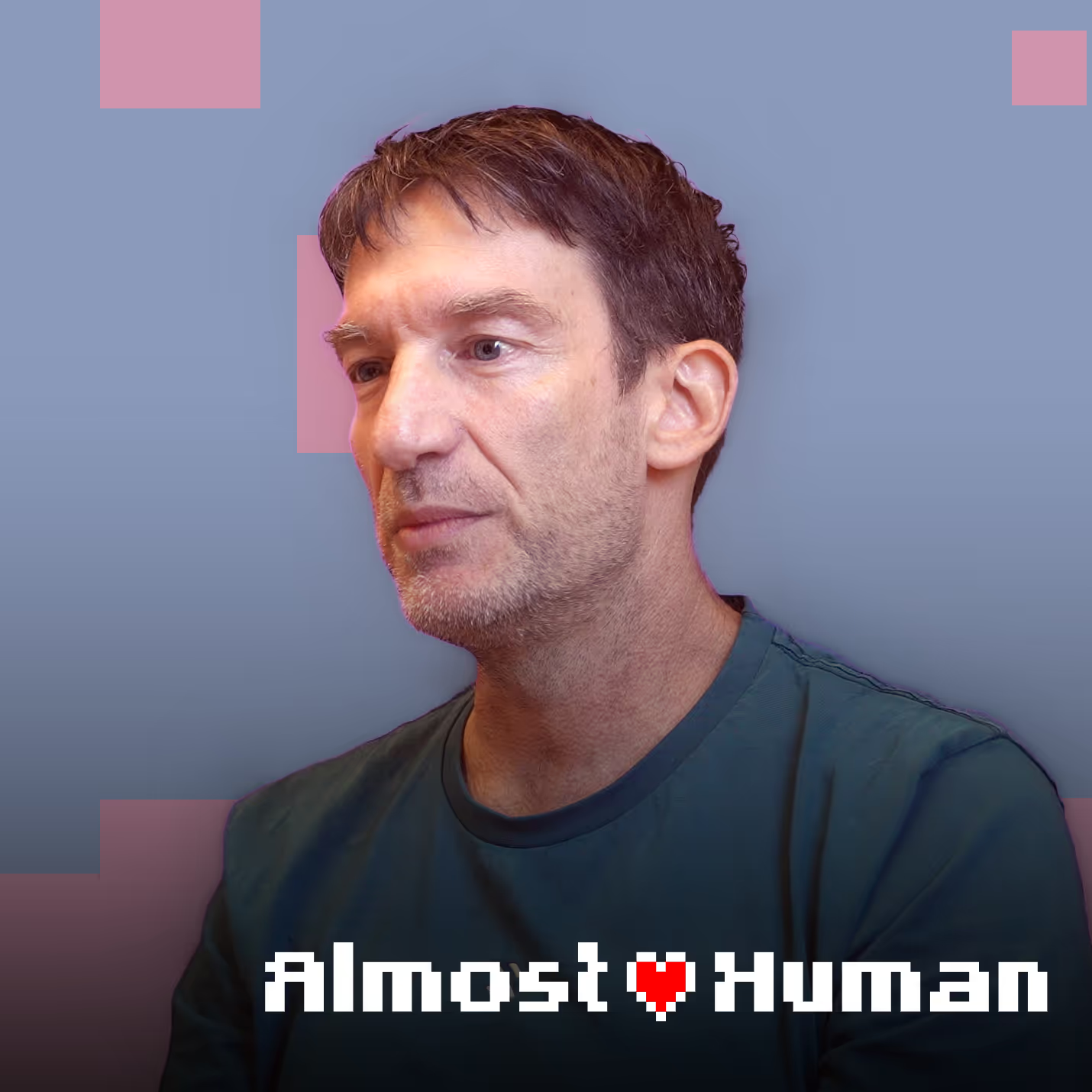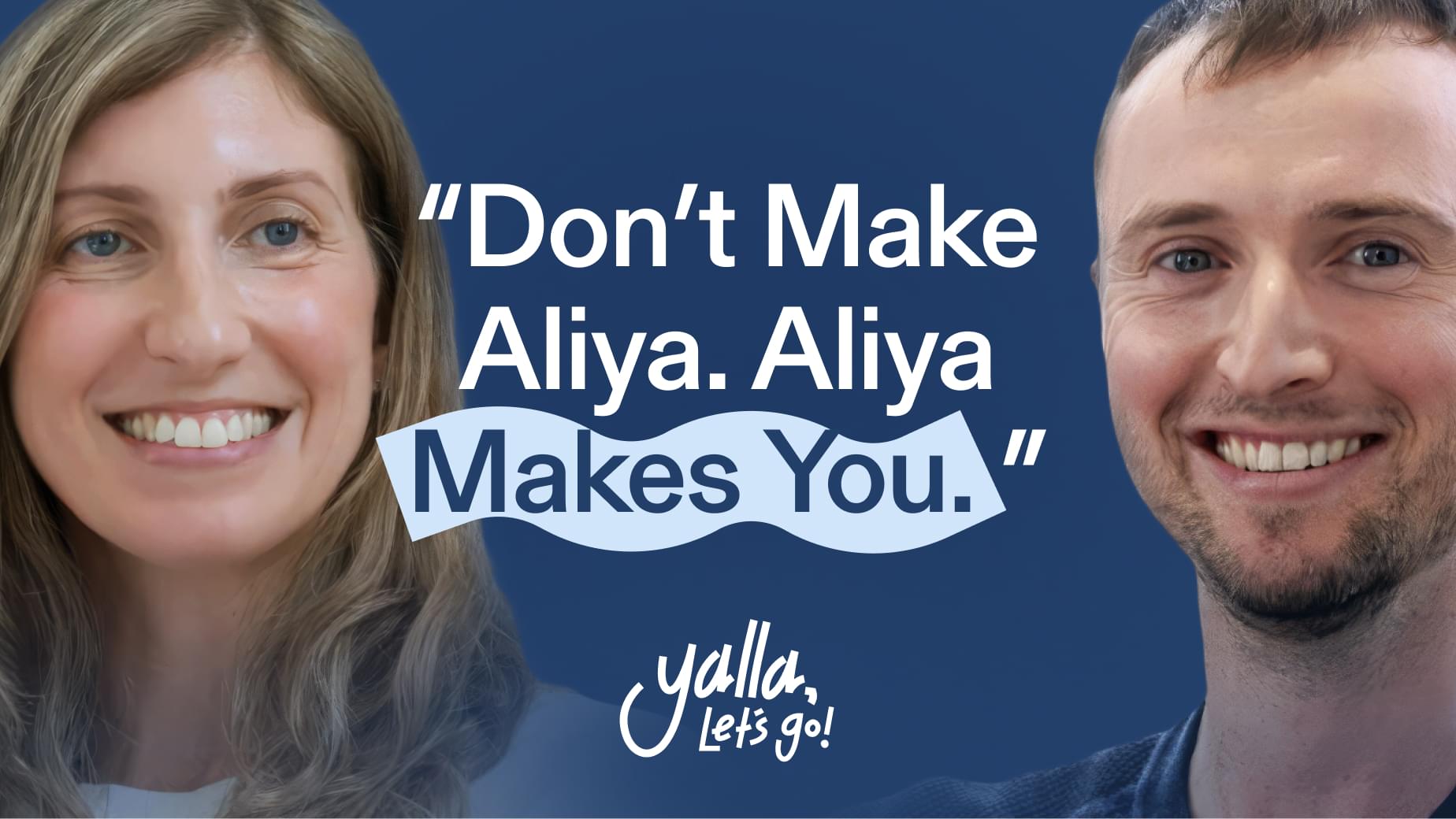Samuel Arbesman



How can values create value? On this podcast, Michael Eisenberg talks with business leaders and venture capitalists to explore the values and purpose behind their businesses, the impact technology can have on humanity, and the humanity behind digitization.
Samuel Arbesman



How can values create value? On this podcast, Michael Eisenberg talks with business leaders and venture capitalists to explore the values and purpose behind their businesses, the impact technology can have on humanity, and the humanity behind digitization.
Samuel Arbesman



How can values create value? On this podcast, Michael Eisenberg talks with business leaders and venture capitalists to explore the values and purpose behind their businesses, the impact technology can have on humanity, and the humanity behind digitization.
Samuel Arbesman
Samuel Arbesman
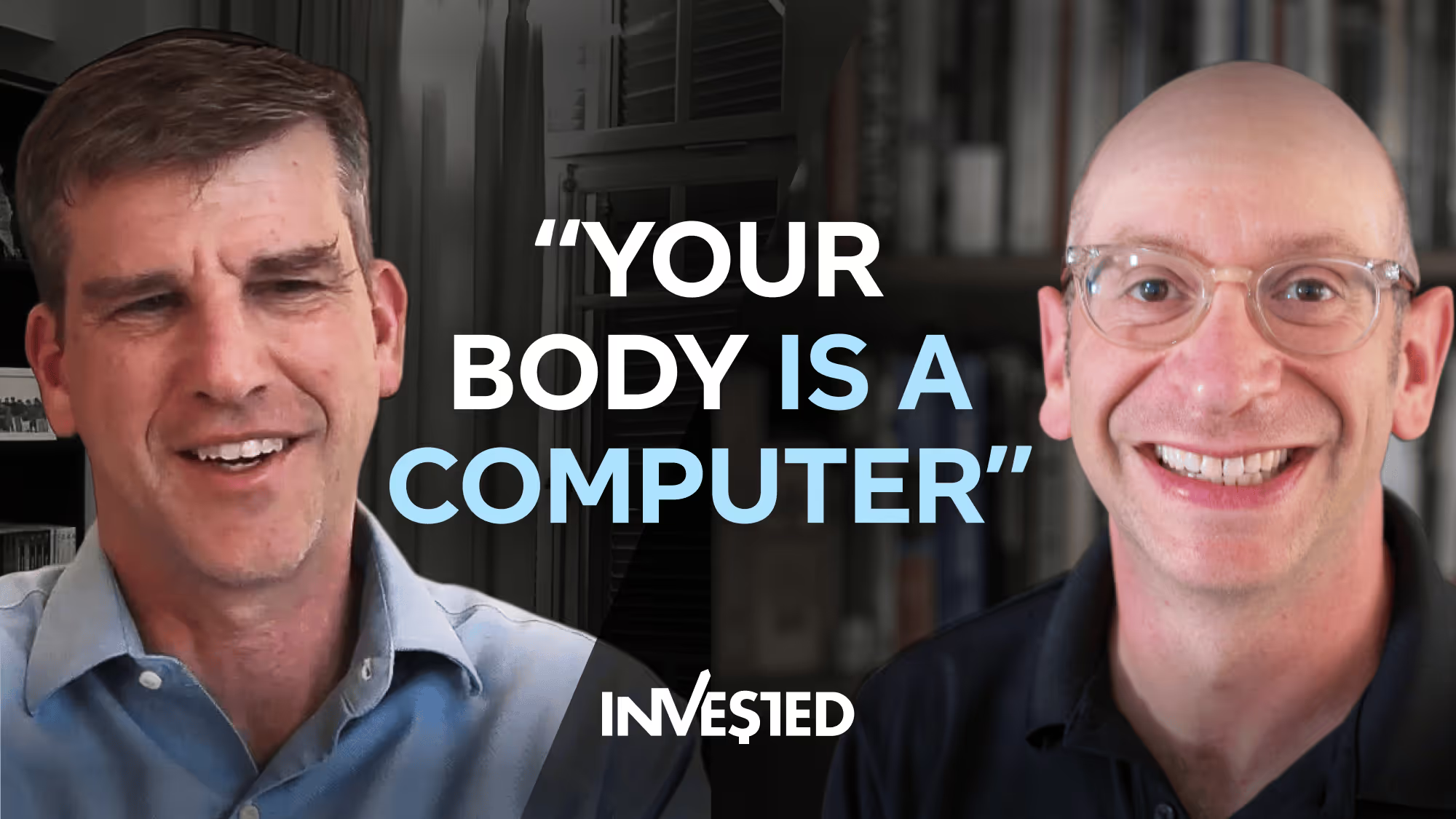
Samuel Arbesman
Samuel Arbesman
- [00:00:00] The Intersection of AI and Creativity
- [00:03:11] What it Means to Be a Scientist in VC
- [00:05:55] The Frontier of Computation and Biology
- [00:08:51] Biology as a New Computing Paradigm
- [00:11:45] The Future of Personalized Simulations
- [00:15:10] Applying Complexity Science
- [00:17:49] Sci-Fi Ideas in Biotechnology
- [00:21:07] Ethics of Biohacking and Human Enhancement
- [00:24:14] Humility and Personal Values in Science
- [00:36:57] Embracing Uncertainty in Knowledge
- [00:39:20] The Power of Incremental Progress
- [00:40:38] Learning from History and Tradition
- [00:43:59] Reconciling Science with Tradition
- [00:46:01] The Role of Community in Modern Life
- [00:48:41] Individualism vs. Community in Tech
- [00:50:06] Cultural Foundations in Tech Development
- [00:57:09] AI: Evolution or Revolution?
- [01:03:06] Finding Meaning in a Post-Scarcity World
On this episode of Invested, Michael hosts Samuel Arbesman, the Scientist in Residence at Lux Capital. In addition, he is an xLab senior fellow at Case Western Reserve University’s Weatherhead School of Management and a research fellow at the Long Now Foundation. He is the author of The Magic of Code, Overcomplicated, and The Half-Life of Facts, and his writing has appeared in such places as the New York Times, Wall Street Journal, The Atlantic, and Wired, where he was previously a contributing writer. He lives in Cleveland with his family. The first computer he used was a Commodore VIC-20.
Please rate this episode 5 stars wherever you stream your podcasts!
Samuel (00:00.11)
We thought only humans are the ones who can write crappy poetry–now AI can write crappy poetry.
Michael Eisenberg:
What’s the most sci-fi company that Lux has invested in?
Samuel:
Ooh, that's a good question.
Incremental progress. It sounds weak, but I actually think that is probably the best way to think about the world. Computation can be much broader than the way we often think about our traditional computers. This AI system is cool, but there's always X that can never be done by AI. We say this–and then we're constantly slapped in the face by the next advance.
God is simply things that science has not explained yet. But the truth is, science has made a lot of advances. If you adhere to this idea, your conception of God gets narrower and narrower and narrower.
Michael (00:40.202):
I am so excited to have Sam Arbsman with us today on Invested. Good morning, Sam.
Samuel:
Good morning, good to talk with you.
Michael:
Sam and I have been pen pals for the last few years now, and done some Zooms and calls, and he is among the most interesting people in the world. And he's just published a new book. What's the title of the book, Sam?
Samuel (00:58.488)
It’s called the Magic of Code.
Michael:
The Magic of Code. We'll dig into soon. So Sam, please tell us who you are, what do you do?
Samuel:
Okay. So I'm Sam Arbesman. I am the Scientist in Residence at Lux Capital. So another venture capital firm kind of focused on emerging tech and frontier tech, deep tech, whatever we want to call it, kind of the science-fictiony side of things. And I am their Scientist in Residence. I can tell you more about what that actually means as well.
Michael:
What is the Scientist in Residence?
Samuel (01:33.666)
So that is a good question. So yeah, it's kind of a vague title, but basically my job is to survey the landscape of science and technology, and based on that, find areas kind of at the frontier that could be relevant for Lux. Could be individuals, communities, people, actual companies, and trying to kind of bring those into the orbit of Lux. And sometimes that's downstream from investment–so finding these areas and connecting them to the portfolio of companies we've already invested in.
But a lot of the time it's actually very far upstream from investments, kind of finding these areas well before they might be ready for investment, and just either laying the groundwork for potential investment, or more often, just kind of trying to find interesting areas and communities that could be relevant for the way we're thinking about the world or potential talent, and things like that.
And so, as a result, I get to, in terms of what it means practically, it's a lot of reading and writing, engaging with the public, talking to lots of interesting people all the time, and really just kind of trying to find interesting areas at that frontier.
Michael:
What's the difference between a scientist and a technologist?
Sam Arbesman:
That's a good question. I feel like there's flippant definitions of, scientists are kind of trying to discover the way the world really is, and technologists are kind of trying to build things. And I actually think, I mean, even though that's kind of like a flippant answer, there probably is some truth to that. There's also probably a lot of feedback between the two. Like technologists are potentially trying to build things, but they're also trying to understand the world and then kind of bring that understanding into reality.
And science is often about trying to kind of really understand reality around us, the way the world is. That being said, oftentimes a lot of science involves a lot of tool building. So in order to really understand the world around you, you have to build new technologies. So there's a clear feedback between the power of particle accelerators and how that has moved forward–and actually better understanding of physics.
And so these things are distinct, but I actually think they're a lot fuzzier in terms of the boundaries than people might necessarily think.
Michael Eisenberg:
Sam, why do you use wired earphones?
Samuel:
Those were the ones that my producer sent me. And so I just use those. I don't know why. They get the job done.
Michael Eisenberg:
They feel kind of not-frontier.
Samuel (04:04.138)
Definitely not. So that's an interesting thing in terms of the frontier. So there's different ways of thinking about the frontier. And so actually there's a great phrase that Nintendo has used, where it's called lateral thinking, using weather technology or withered technology. And the idea is that on the one hand, it's really good to be using the newest technology and trying to understand that. That being said, the newest technology is often really fragile and kind of janky and kind of weird.
Nintendo has this idea, I imagine other people ascribe to it as well, which is using pre-existing, maybe sometimes older technologies and then recombining them in unexpected ways. And so I'm not really sure I'm doing that with my headphones, but I'd like to think that maybe I'm part of that larger tradition of figuring out how older technologies can be recombined in productive ways.
Michael:
Okay, I said before we came on air that we would geek out a bit today. So I'd like you to give our listeners a glimpse into the future. What are some of the areas you're working on that people find super surprising right now?
Samuel Arbesman:
That's really interesting. So on the one hand, I'll say in terms like the frontier, as much as I like thinking about the frontier, I’ll caveat that with, I feel like I'm not particularly good at predicting what is next. I can give an example. When my first book came out back in 2012, I was kind of excited that my book was going to come out just in time for the end of print publishing, because I thought that was going to be the end. It was going to be all digital. Of course, I was completely wrong.
I still have many, many print books around me. And so–
Michael (05:42.402)
What would people do for backgrounds for podcasts if there weren’t printed books?
Samuel:
Exactly, just a line, a whole screen of Kindles.
Michael:
How long did you spend curating that book set up behind you for the podcast? I hear people do that a lot.
Samuel:
So this is just pre-existing. These are just my books. But no, so I'm hesitant to make any large-scale predictions. For me, it's much more about trying to find things that I find interesting or novel. And then some of those things will end up being kind of the future. Some will not. And so if one example–
Michael:
You know what the Talmud says, that since the destruction of the temple, prophecy was given to fools. But you'll be our not-so-accurate prophet. Like 10 years, as you dig us in, and we won't hold you to the predictions, but really help people experience the future right now.
Samuel (06:25.985)
Exactly. So one theme that I've been thinking a lot about is the way in which computation and biology are becoming increasingly intertwined. One way to think about this is, on the one hand, I mean, you think of computers and they're kind of all bits, zeros and ones and things like that, very discrete. And then you look at biology, and biology also consists of–not necessarily zeros and ones, but in this case, the basis of DNA, the ATCs and Gs. And it turns out, if you stretch this analogy a little bit further, you can start making other kinds of comparisons between features in biology and features in computation. But the truth is, biology is not just information. The way I think about biology is like, there's the mess, which is where everything is kind of vibrating and messy and wet and squelching. And then there's the information, the bioinformatics, the kind of thing I just described.
But the truth is, you need both to understand biology truly. But over the past number of years, and I think increasingly going forward, people are thinking very deeply about ways in which biology can be increasingly embodied in computing, and then use that as a way of actually engineering new things. And so obviously there's this whole field of synthetic biology, but there's also people trying to actually build large scale simulations of biology, specifically the cell.
So over the past few years, people have tried to make these enormously complicated cells that are entirely virtual. And then the idea behind that, is use that as the precondition for then developing either new understandings about biology, or potentially even new therapeutics and things like that. But alongside this, there's also another way of thinking about biology, which is that biology is a much broader way of doing computation, of managing information. And so we have kind of the traditional way of thinking about computing, and the physical computer or digital computer, and the zeros and ones that I mentioned earlier. But biology in many ways is also managing information. I kind of mentioned the sort of, the way in which you kind of try to shoehorn biology into the computer model, but, if you don't try to do that, and you actually say, “Okay, biology is weirdly statistical and probabilistic, but it still actually does a lot of computational things,” you actually then realize that, oh my God, computation can be much broader than the way we often think about our traditional computers.
And people have actually begun trying to compute using biology, whether it's using DNA to do things in massively parallel ways, or trying to recognize that there's kind of like various enzymes and proteins are really doing multiple different things at different scales all at the same time. So there are people call this and there's this term, I read it in some article, called poly-computing where it's like multiple aspects of computing all kind of put together. And so that and I can go, I could probably go on. I will pause the ramble there, which is–
Michael:
No, no, keep going. Why is this–the cell, the enzymes, the DNA, powerful computers, which is I think what you're saying, in and of themselves, and then take us to the next level, which is, how will that change computing?
Samuel (09:49.58)
So yeah, they're very powerful. And so people have actually used, I mentioned DNA for computing. People have also-
Michael:
Give an example.
Samuel:
So one example was, so there's one very hard task, which is factoring large numbers. And so this is actually very relevant for cryptography, like public cryptography, like being able to make and break codes and keep them secure, relies on the fact that actually factoring very, very large numbers into their prime factors, is hard. And it takes a lot of computational power. It turns out that you actually can do this kind of thing using DNA in this bath, in this much more parallel way. I don't actually think it's kind of undoing all of cryptography, but it shows that you can do these kinds of things in different ways. And there's also large-scale storage of information using DNA.
I actually have, there's this great press called Asimov Press, and they publish these really interesting articles online about biology. They just released their second volume. And in addition to printing it in print form, they, at least they sent me, this weird little steel cylinder that inside it has many, many copies of the actual book encoded in DNA. And so people are trying to find ways of actually using DNA for storage.
People have also discovered that larger organisms can compute as well. Like the slime mold, which is kind of some weird, I guess, fungal thing that's kind of maybe between bacteria and fungus–I'm not getting this correct–but it actually, it is able to optimize the way it kind of moves or lays down tracks on a two-dimensional surface. And it turns out you can actually use slime molds to figure out the way in which–so there's a classic problem called the ‘traveling salesman’ problem, where in computer science, where you have lots of different cities, and you try to figure out the optimal way of moving through them. And I think slime molds can actually solve that. If I'm remembering correctly, they certainly can lay down tracks in terms of like, if you put lots of cities and you say, okay, these are the cities and their population densities, try to figure out the most optimal, road network, and it will actually recreate a lot of the time, the way in which real world networks are, which is kind of wild.
Michael (12:15.66)
Why is it useful to me to have a cylinder of DNA that has a book on it? And how do I even read that?
Samuel:
So for me, it's much more a proof of concept and I get to show it to my kids and say like, “Check this out, there's actually a book.”
Michael:
What, they’re like, “Dad, prove it to me?”
Samuel (12:47.79)
Yeah, so in terms of being able to read it, that is always a little bit harder. There are companies and services for doing this kind of thing. For me, one of the other things I think a lot about is being able to just store all of the information that we have out there and like whether–and so I'm a big proponent of the internet archive and services that are just trying to digitize and maintain huge amounts of information, and being able to have other ways of storing that is really good. I'm also just a big proponent of redundancy. And so it's good we have servers, and it's good we have, I don't know, magnetic tape drives and things like that, but also thrown onto DNA. And so there is a whole industry for that.
I feel like in certain cases, it's more useful or more practical than others. I don't necessarily think we're gonna be replacing our RAM and our computers with DNA, or anything like that. That being said, I think more broadly, the idea is that if we can kind of bridge this gap between computation and biology, there are just potential avenues open that we might not otherwise have considered, especially more broadly to the broader ways in which we think about how computing can be. So in the same way that we can kind of encapsulate certain things in computing from biology, we can also actually hopefully take inspiration from the way in which biology computes to then potentially develop new types of computers.
Michael:
Give us another example. So we just did biology and computing. What's the next example?
Sam Arbesman:
So another one that I've been thinking a lot about, and I'm not really sure if this is cutting-edge or more just kind of something that I want, related to also this idea of like simulation with biology, is kind of personalized simulation more broadly. There was a company back in the 90s, I guess, and the studio actually existed for far longer after it was acquired, called Maxis. And so Maxis was the company that made SimCity, SimCity 2000, SimEarth, SimLife, all these different games. And it was this weird moment where there was a company that, through games, was able to democratize all these ideas about complexity science and complex systems and large scale simulation, and make it appealing for a broad audience. And so I've begun thinking about what it would look like to have a Maxis 2.0. Like could it be possible for actually building a new company around simulation but geared towards a general audience?
And so it turns out there are many people who are thinking about this in terms of games, trying to build simulation games. But one of things I've also been thinking about is, could you actually build these, a sort of meta tool, like a platform for large scale simulation, but in a way that can be personalized? So with SimCity back in the day, SimCity was enormously valuable and was a lot of fun. And you gained a lot of insight into how cities worked or at least just kind of how your intuition about complex systems might actually be informed.
But you were just operating with the city model that was created by Maxis, that was created by Will Wright, the creator of the game. And a lot of those intuitions, or preconditions, or axioms around how cities work, even as I have to take them as given–ideally you should be able to tweak them. And so I imagine some platform where you can kind of just easily spin up your own personalized custom Sim City and then actually play with it.
And I feel like, that’s kind of like the game, fun version, but you should also be able to do this for actually modeling cities themselves, as opposed to just a toy version of that. And you should be able to do that with biology, or technological systems, and try to understand the nature of the internet. And I feel like there should be this kind of personalized simulation tool. I also kind of view this by analogy with, there's a great piece of software in like the late 80s, 90s in the Macintosh called HyperCard, where HyperCard was, I guess the best way to describe it was, it was kind of this authoring program where you had decks of virtual cards on your computer. You were sort of making a bespoke website that just lived on your own machine. And you could just easily enter text or draw on it. But under the hood, you could then begin to actually program. And so you could add buttons, and make them make noises. And then you could actually do a lot of programming.
And it turns out HyperCard was enormously powerful. I think it was the tool that was used to build the original version of the computer game, Myst, that became enormously successful. And so HyperCard was interesting because it was a tool, but it was sort of this tool to make other software. And I would love it if there could be these kinds of tools, like a HyperCard4 simulation. So that's another thing that I've been thinking a lot about.
Michael Eisenberg:
So you are, you just mentioned complexity. You are a complexity scientist. What is that?
Samuel Arbesman:
So I mean, the truth is, complexity science, it's not really a specific thing. It's kind of more like a–
Michael Eisenberg:
Do you think your wife is watching right now and goes, she raises her eyebrows and says, “He’s just complex.”
Samuel (18:12.17)
Maybe she says that. I guess that's certainly better than the alternative, saying, “He's really simple.” So no, but complexity science is this idea that there are these large complex systems, they're kind of systems of a huge number of interacting parts. That when all these interacting parts combine and actually have certain behaviors individually, that when they all are combined, there's almost a certain amount of emergent behavior. There's kind of complexity, and sophistication, and behaviors that you might not otherwise have expected based on the individual parts. And complex systems are found in biology, they're found in technology, they're found in social systems, like societies, how individuals interact, economies–these are all complex systems. And the interesting thing about complexity science, which I kind of mentioned before, it's sort of this bundle of approaches.
It's interesting, because on the one hand, the differences in the details of all these systems matter, but there is actually also great power in being able to abstract away the details and find commonalities, and say that, even though certain features of the cell are obviously very distinct from how we think about social networks, there are also similarities in terms of their structure, and their function and their behavior. And trying to understand these kinds of things can actually give us greater insight into how to think about these systems, how to manage them, and things like that. And so that would say...
Michael:
Give me an example of the comparative properties of the emergent properties of a complex system like biology, and a complex system like social networks.
Samuel:
Yeah, so one specific area is looking at the network of connections. And so, it turns out that if you look at–now I'm kind of reaching back into my train, this is a while ago, but I think this is accurate–if you map out the relationship between different proteins within a cell, so like which proteins interact with each other, you get this distribution. You'll get this kind of massive network of, okay, this protein is connected to all these other proteins or other molecules, and so on and so forth.
And you can do the same thing within societies. You can actually look at social networks like Facebook and things like that. Or you could actually look at physical networks, of physical social networks, of who would actually physically interact with other people. And you will also get some sort of network. And it turns out that one of the features of many of these systems is what is called this power law distribution, or heavy tail distribution, which is that a small number of nodes within these systems, whatever they are, they have the vast majority of the connections. So the equivalent would be like on social media networks, like on Twitter or something like that, there are a few number of people who have tens of millions or more connections. And then there's kind of this very, very long distribution of many, many more people that have much smaller ones. And the idea behind this is that this is actually very, very different from how we think about the world, of the normal distribution of the world.
An example of normal distribution would be height. So height is, there's kind of like an average height for people. Some people are a little bit shorter, some people a little bit taller, but you're never going to walk down the street and see someone who's a hundred feet tall, or a thousand feet tall. That is just kind of something that just doesn't exist, and it's not possible biologically. But in complex systems, and these kinds of networks with this kind of heavy-tail distribution, that's what you see. And you see this very, very often. And this also holds true for wealth and things like that as well. And so that kind of model can give you a great deal of insight into these systems, and show how in many ways these are wildly different from the kinds of systems that we might interact with on a daily basis in our everyday life.
Michael:
What's the most sci-fi company that Lux has invested in?
Samuel (21:37.868)
Ooh, that's a good question. The most sci-fi company. I'll say one.
So there's one called Variant Bio. The idea behind this is that, and going back to variation, there's obviously variation within biology. There are people who are shorter or taller, some people who might need to sleep more or less, but there are also massive outliers. And so there are some people who need to sleep very, very little. And like, it's not as if they're just constantly sleep deprived. They are fine with this. And there are certain subpopulations of humanity that might metabolize fat completely differently. So for example, I believe the certain populations in Alaska, like within the Inuit, they are able to subsist on a diet of a huge amount of, I think seal fat, in a way that if I had that kind of diet, I would probably be dead by now. Because they just have a very different way of metabolizing those nutrients.
And the idea behind Variant Bio is to actually survey the world, and actually try to find these massive outliers and these kind of, like, I think we're hesitant to say mutants, or X-Men, or whatever it is, but there are people and there are populations that are very, very different than the average, or certainly within the kind of the traditionally-studied populations maybe within the United States or Western Europe. And so therefore it is really valuable to actually try to understand the vast diversity, and then find these crazy outliers like in really, really interesting ways, and then use that information then as the basis for developing therapeutics and pharmaceuticals and things, to try to actually understand and potentially even use that information to see if maybe people can become these kinds of outliers.
Michael (23:30.7)
Is that different than the kind of research that they did like on Ashkenazi Jews, or people from Iceland who have these homogeneous gene pools to try to find, first of all, inbred diseases and second of all, therapeutics?
Samuel:
So I think it's not that different. And one of the interesting things behind those populations is because they're relatively uniform. We can kind of use that as a way of understanding kinds of things. There's not always that many, there's not necessarily that many outliers in those populations. And there are some, especially in terms of diseases and things like that. But I would say it's kind of taking that sort of idea, and then using and taking it to its logical extreme, and trying to actually try to find these kinds of weird things that feel like science fiction but are real. Humanity is large enough that there's going to be these weird outliers.
Michael Eisenberg:
Give me another sci-fi one.
Samuel:
Another sci-fi one. So this company was acquired several years ago, but there was this company, Control Labs. So that one's very interesting science fiction. It's kind of based on the idea of brain-machine interaction, brain computer interaction. And right now, a lot of the field within brain computer interaction involves cracking open your skull, and kind of putting in electrodes to read the-
Michael (24:52.429)
I think you’re referring to a Neuralink.
Samuel
There are other ones as well, but yes, yes, certainly Neuralink. And the idea behind Control Labs was like, what's even better than cracking open your skull? Not cracking open your skull! And being able to read the neural signals on your wrist or your arm indirectly. And then it turns out because of sophisticated machine learning, these electrical signals can actually be converted into behavior. So for example, you can move your hand around, and the motion of your hand, based on these signals, can be recreated entirely within the computer. But in addition to that, once they have this kind of understanding, they can actually recreate the motion of your hand even without you moving, just kind of based on thinking. And so one of the interesting demos of Control Labs, which was both very interesting but also kind of weird to watch it–like not much is happening–it’s someone sitting in front of a computer, not doing anything, but playing a game. Because they were just basically just thinking, and the game was actually, they were playing this game. And I find that that kind of non-invasive brain computer interaction, super amazing, a lot lower threshold and barrier to entry. Pardon the pun, but it's just a lot easier to do. And I think people might be a lot more willing to actually try this if it does not involve surgery.
Michael:
Were you ever a supporter of the Control Labs investment?
Samuel (26:21.144)
So I’m not part of the formal investment team.
Michael:
But what’d you think?
Samuel:
So I thought it was very cool. So yeah.
Michael (26:29.194)
So you were in favor. Okay, and what do you think about Neuralink?
Samuel:
Neuralink, I think it's interesting. And I know a number of other folks and other companies kind of involved in that. I think, whether it's Neuralink or kind of other in more invasive brain-computer interaction, the major, not the major hurdle, but the initial product-market fit is gonna be much more around certain things around medical conditions that are necessary. Which is very important, but it's a much smaller potential market, because not everyone is going to be willing to get surgery. For me, the way I think about these, I think they're very interesting. I'm not really sure if they're scalable companies just yet.
Because of my role, I have a little bit of the luxury to not necessarily have to think about those kinds of things as investments. I get to think about them just as kind of like interesting science experiments and cool ideas.
Michael:
So you don’t think people want to embed chips? Like in the arm, the heads..?
Samuel (27:45.664)
I think they might. I mean, people are already doing that kind of thing. And I think people will, I don't know to what degree everyone is going to do it and I have no idea the timeline.
I mean, this is going back to saying, in terms of the idea of like–I'm bad at prediction. So I don't really have a good sense of the timeline. I think.
Michael:
In 20 years, what percentage of humanity will embed a chip in them?
Samuel:
That is a good question. Whatever number I say is gonna be wildly wrong, but I'll do one anyway. In 20 years, what percentage? My guess is like below 15%. I don't get the sense-
Michael:
That’s a high number.
Samuel:
That's high, but I still think–some people would say it's gonna be well over half. And I don't get the sense that people want that kind of thing.
Michael:
The people who embed the chip, the less than 15% who embed the chip, why are they doing it? What are they doing it for?
Samuel:
I think there's a dissatisfaction with baseline humanity for some people. And this is kind of a way of managing that. So when I think about the, what's it like, the biohacking community that was very popular maybe like five, 10 years ago, and people are still doing a lot of the kinds of things. There's a sense or desire for like, if I just do this one trick or this one thing, I'll need to sleep far less, or I can, I don't know, I'll become very strong or whatever it is.
And I think one that kind of misunderstands sort of just the massive complexity of biology, we are not that easily overclocked. There's always trade-offs and downsides. But it also just speaks to the fact that people feel that we can be better. And I have two minds of that kind of desire. Like on the one hand, I do think we should be constantly improving ourselves, and medicine should be improving. Like we want all these kinds of things, but at the same time, there is something to be said for being happy with, or rejoicing in like the nature of the human. And I think some people don't want to hear that. And I imagine the people who do not want to kind of think about the humanistic kind of way of thinking about technology and just living in the world–they might be the early adopters for these kinds of technologies. But I'm not sure.
Michael:
It's like, some people get plastic surgery because they're not happy with the way they look? Other people do biohacking because they want to be stronger, sleep more, sleep less? And other people will implant chips because they want to be…
Samuel:
Yeah, and maybe have better memory, or be able to think faster, or understand things more rapidly. I do that, I mean, so there's one trend within computing, these tools for thought. And this is like another thing that I think a lot about, these using the computer as a way to better enhance our thinking. And I think that's a really good tendency. I think there's nothing wrong with that.
Back in the 1970s, I think, Steve Jobs talked about computers as this bicycle for the mind. And the idea behind that was, I think he read something, an article in Scientific American where it was a chart of energy efficiency of different organisms. And I think it was like an albatross was really efficient, because they can kind of glide, and other animals were not as great, and humans were kind of mediocre. But then once you put a human on a bicycle, then suddenly we become much more efficient. His analogy was, computers are this bicycle for the mind. And I do think that if we have these better tools to kind of navigate information, things like that, that's great.
But there's always–at what cost? And I think some people will say that implanting these chips will be worth the cost, that they will be able to better assimilate huge amounts of knowledge and information very rapidly. And other people will say it's not really worth it. And to be honest, these things are so far from everyday use that I'm not really sure where I will fall on that.
But I think we're going to increasingly have these kinds of conversations about how we actually cyborg-ify or whatever term we wanna use, of using these technologies, incorporating these technologies into our bodies and how that changes things. And the truth is, this is no different in some ways than the conversation around smartphones. Like, and they are external to us, but in many ways, they come with huge trade-offs and we adopted them very, very rapidly. And now we are increasingly seeing, especially among children, that this is not some unalloyed good.
There are a lot of trade-offs, and a lot of issues, and we need to be much more deliberate about these kinds of things. And so for me, when I think about this kind of stuff, I think about just how we can maybe have these conversations and be a little bit more deliberate when we adopt technologies, which is very hard to say when we just want to kind of constantly move forward, and faster and faster.
But I do think there was something to be said for, not necessarily pausing, but kind of taking stock of what these things will do and kind of just being deliberate in more ways.
Michael (32:52.652)
Botox yes, or Botox no?
Samuel:
I mean, for myself, I have no interest.
Michael:
If somebody came to you for advice, what would you tell them?
Samuel:
Oh, that's a good question. I guess what it comes down to is, are all these things, are they going to change the way in which you think about yourself? Because I think some people think that if only I had this one change in my body or my mind or whatever it is, then everything will be good. And in general, that doesn't seem to be the solution. So maybe if you kind of don't think that, then it's better. You're just kind of like, I'm just going to do this kind of thing anyways for, maybe it's because you're an actor and you kind of just know you'll get more jobs. Then I feel like there's kind of like this much more utilitarian approach. If you think it will actually change your life and your sense of meaning and purpose, then it's probably not the solution.
Michael (33:49.966)
Since you're coming to us from the great State of Kansas right now, if I remember correctly.
Samuel:
I'm actually in Ohio, yeah–we relocated, about a year and a half ago.
Michael:
Okay, I was gonna give a shout out to my cousin who's originally from Wichita, Kansas. Ranul Mann who just won Clinician of the Year in some big hospital in New York, and he was right at the beginning of the Botox, he said, “Stay far away from Botox. It's not gonna work.” But you kind of referenced a second ago, I think, the old Jewish adage without referencing it, which is in Hebrew, Ezehu ashir ha-samech b'chalkoh. Who is he that is rich, the person who's satisfied or content or happy, with that, which is, and that's like a segue to kind of our core topic here on Invested, which is–how do values create value, and what your values are. So how would you articulate your kind of core personal values?
Samuel:
I mean, there's kind of the practical in terms of my family, and things like that. Is that what I kind of want to talk about, or kind of like the broader thing? Okay, so then I would say the one broad theme or value that I think a lot about is humility. Just kind of massive, epistemic humility. The truth is, I feel like a lot of my writing and thinking is kind of trying to orbit this idea of humility.
I feel like, and going back to how I realized I'm not very good at prediction, I mean, more often than not, we're really bad at trying to understand massive complex systems or the complexity around us, or just various ideas. And we have to confront that kind of thing. And I think if we fail to do so, we're just constantly going to be like sideswiped by the reality of the world being much more complex than we realize. And so that kind of humility is very important.
An example would be, well, this is kind of a trivial example, but it's kind of a fun one. So when the Apple Watch first came out, there was this article, I think it was in the Wall Street Journal, discussing whether or not people were still going to buy expensive mechanical watches.
And they interviewed this one guy who was a fan of mechanical watches and he says, “Yeah, of course I wanna buy a mechanical watch. I think of it as, it's so much more intricate and complex as opposed to a smartwatch, which is just a chip.” And of course, like the smartwatch is like, it's orders of magnitude more complex, but we've been shielded from that kind of thing. And I think we need to just be aware of the vast amount of complexity in our technologies, in the sciences, in our societies, in the way in which the vast systems around us operate.
And we need to just constantly be aware that we don't understand a lot of things, and that's okay. We've kind of always recognized this. And I think I discussed this, maybe it was in my second book, Overcomplicated, I feel like the various trends of the enlightenment have been very, very good. The idea that you can take your rationality, and kind of approach and apply it to the world around us to understand it–that is really good. We should keep on doing that kind of thing.
In science, that's one of the things I do. But at the same time, before that time period, there was a greater degree of comfort with not necessarily understanding the world. So for example, like in Maimonides' Guide to the Perplexed, he gives a list of things that no human will ever fully understand. And he was okay with that, recognizing, okay, like there are going to be things that we can ever fully grasp. And I think we've sort of lost that sense. So I would say that is definitely one value that I hold dear.
I would say, also related to that, is this idea that incremental progress is–it sounds weak or kind of like a cop-out, but I actually think that is probably the best way to think about the world.
And because we are in this massively complex world, it is very hard to understand the ways in which the world is going to change and each specific technological advance or scientific advance is going to change the world. so therefore having a kind of much more sort of humble tinkering approach around the world, this kind of more incremental view, I actually think is much more valuable.
Related to that is also, so related to this is–I'll kind of give two contrasting, and you can stop me at any point, but there's kind of like two contrasting views. So there's this idea of like the tech tree, which, I think it grew out of certain computer games, like Civilization, things like that. Which is like, you imagine that each excessive technological or scientific advance then allows you to build kind of the next one. And I think there's a great deal of truth in this. The problem is though is, we don't have that texture. We can't look at it and say, “If only we built this thing or developed this thing, it would lead to this next thing.” And so as a result, the kind of ideas that we need to internalize are kind of the things from–there's actually this great book, it's co-authored by Ken Stanley and Joel Lehman called Why Greatness Cannot Be Planned. And the idea behind this is that when you have some vast high dimensional space that you're trying to explore, it doesn't actually make sense to optimize or aim towards a specific goal.
It's much better to just optimize for interestingness, or novelty, and find interesting stepping stones, and then recombine them in intriguing ways. So I think that kind of incremental progress is truly the only way in which we've made progress. But in addition to that, its precondition is this kind of omnivorous curiosity. Like you need to be curious and interested in lots of different things, because you don't really know how they're going to be combined together.
And so I would say, if there's curiosity, that's one, humility, of incremental progress is the way that's enough. These are other values. And I would say, and another one is also just kind of, guess, related to history. I am very informed by history and even tradition, how we think about these kinds of things. And so, especially in the tech world, there is a certain amount of historical ignorance, sometimes even proudly so, like we don't really care where we came from because the new is always the thing that we care about.
And the truth is, understanding the history of technology, or understanding just more deeply the perennial wisdom that has led us to this moment, can be very, very valuable, because you can understand a certain amount of path dependence. You can understand the path that is not taken, you can understand why things are the way they are, and why they're not. It prevents you from–sometimes looking at old computer magazines is fun, but for nostalgia’s sake, but more broadly, it gives you a roadmap to not necessarily just constantly reinvent things. I see there are a lot of ideas around thinking from first principles, or certain things around effective altruisms that are starting from scratch. The truth is though, a lot of these ideas are slowly but surely just kind of recapitulating a lot of things that a lot of wisdom traditions, including Judaism, have known for millennia. Like these are not like novel things.
Michael (41:23.347)
Wait, you think effective altruism parrots Judaism?
Samuel:
I would say certain aspects of giving tzedakah, like giving charity, like large–
Michael:
Everyone's got given in charity, right, giving alms to the poor…
Samuel:
No, but the idea is that, no, I would say certain things around certain aspects of effective altruism, I would say are not. They're kind of their own thing. What I meant more was the idea that thinking from first principles, whether or not certain ideas around effective altruism and kind of giving what you can, and things like that, these feel to certain people to be radically novel ideas–and they are not. That is kind of what I'm saying. And I would say, related to that also is the idea of like-
Michael:
There have been other people who have destroyed society before by not reproducing. Just like the EA people.
Samuel (42:11.438)
No, the EA people are- I don't think the EA people have anything related to not like lack- like not reproducing.
Michael:
Well we have children in Africa, and we’ll give them mosquito nets, so we don't need to add more children to the world.
Samuel:
No, I don't think that's what EA says. Actually, so I would say, there might be certain people from EA–there are certain people who are obsessed with existential risk, who might actually be concerned about adding new, individual people into the world. I'll say this from the outside, cause I'm not really plugged into the EA world, or the existential risk.
Michael:
I’m not that close to it either, I’m just saying.
Samuel:
But my sense is they, they're not as like, for me, antinatalism as other parts of maybe that kind of tech-adjacent or rational world. So yeah, so I wouldn't necessarily put them in that bin.
Michael:
The climate-change-woke world
Samuel:
I would say that's actually kind of different than some of the rationalist EA world. There is kind of, I imagine there's probably some overlap, but yeah.
Michael (43:09.376)
Yeah, so you segued and you mentioned curiosity. In my book, which is only in Hebrew so far, Everyone Can’t be Moses, I suggested that God chose Moses for the role because he was curious. He saw the burning bush and it wouldn't be consumed, and he said “Hey! Let me check it out,” So you could be Moses too. But it's a good segue, actually. The points you made about tradition and perennial wisdom that's been around forever.
It's a question that ironically both Peter Herbert and Josh Wolfe of Lux told me I had to ask you. How are you able to reconcile, in their terms, ancient religious views in practice, with a professional life focused on modern science plus technology? And ironically, or interestingly, they both reference kosher as an example, which I guess they view as religious and anachronistic, rather than science and technology based.
Samuel (43:59.918)
That's a great question. And so the way I think about this is, I wouldn't say that kashrut, that keeping kosher is like anti-science. I think its its own thing. And for me, it's much more, it's kind of part of the larger aspect of adhering to a tradition and a community. And so for me, like the way I kind of view it is, i guess if I were an ancient Greek, I would feel a great deal of value in ancient Greek mythology and kind of doing certain ancient Greek traditions, and things like that. I still like mythology, even though I'm not.
And I feel like, but my tradition is Judaism. It is this multi-thousand-year tradition that has a great deal of texts and wisdom to draw on, and traditions and rituals and behaviors and things like that. And being part of a community is, it's amazing. It's just kind of this wonderful thing that I think many people don't quite realize the value if you're kind of outside of it.
And so like, for example, in addition to kind of keeping kosher, there's just the whole idea of like Shabbat. And so there's many people in the tech world who are not Jewish or not observant who might see the value in taking a 25-hour period away from technology. The truth is though, if you are not embedded in a community that values that, and then is also participating in that kind of 25-hour withdrawal or taking a break from technology, it's really, really hard to do. And so I think many people try this and they're like, I just feel very isolated. It doesn't make any sense. But if you are part of a community that is sharing meals together, spending time with family, reading, thinking, gathering together, not only is it easy, you kind of feel like it ends too quickly. And so for me, a lot of these kinds of behaviors and rituals and things like that are due to the kind of the power and value of community.
Michael (46:01.742)
Have you run into any, what you would call real conflicts between your, let's call it scientific brain and pursuits, and Jewish orthodoxy and religious pursuits?
Samuel:
I mean, there's practical differences, like practical conflicts where I'll get invited to something and I can't do it just due to timing.
Michael:
Does it trouble you?
Samuel:
Not really. It doesn't really trouble me. I would say I probably have a somewhat different theological take than many people. For me, I view a lot of the ideas within Judaism as part of this wisdom tradition. And sometimes I'll often view things far less literally than maybe some people will. And for me, the way I think about a lot of the stories and ideas within the Hebrew Bible–for me, the people who tried to kind of reconcile them with science, for me, it's more like that is a misreading of the genre. Like there was no science thousands of years ago. And so these stories were myth. Like they're not necessarily myth in the pejorative sense, but myth in the technical sense of, these were stories and ideas meant to explain the relationship between humans and the world around them. So when you kind of understand it that way, then there needn't be any kind of conflict. Like these are just like, these are kind of the stories of my people.
Michael:
Maimonides says if you take some of the midrashim, or the stories around them literally, you can be called a fool. Does it get you into trouble in the community that you're kind of a lack of a literalist?
Samuel (47:55.592)
You mean within the Jewish community? I don't think, I mean, not really. I don't think so. The truth is, I think there's kind of, every Jewish community has a wide variety, a much wider variety of interpretation and perspective than many people realize.
Michael:
Yeah, so when you contrast this to the tech world, which seems to have gone very individualistic over the years, obviously, I think this is a little bit the point you're makin, or maybe a lot of the point you're making, which is, I've got this community life, even the toquevillian community life over here, but the tech world has kind of taken, you know, like Yuval Noah Harari, individualism into extreme. Do you talk about that with other people? Do you agree with what I just said right now? Do you disagree?
Samuel:
I definitely think there's something there, because, actually related to what I was saying of reinventing first principles, there's a lot of people in the tech world who are beginning to realize that things are pretty atomized, and they're trying to actually recreate a lot of the things like these these kind of communal aspects of more traditional religious communities. Like whether or not they're like trying to have, I don't know, regular meals, or trying to have everyone kind of live within a certain specific area so that everyone can interact or maybe share childcare, and things like that. There are people or people talk about like the third space like where it's kind of like a place where people can gather outside of the home or the workplace. And I feel like those are those are a lot of things that religions have and traditional communities have. And so in many ways, they're kind of trying they're they're grasping at those kinds of things because I think many people, or at least some people in the tech community have realized that, yeah, this very individual kind of aspect is not enough. Like, you need something else to be a more complete, more full human.
Michael:
My sense is, by the way, that Christianity is on the rise in the United States right now, and I think church-going is on the rise, and my sense is it's starting to infiltrate the tech community as well. Is that your sense too?
Samuel:
Um, yeah, anecdotally, I've definitely seen some things where people have talked about this within the tech community and yeah, it seems like kinds of Christianity within the tech community are on the rise.
Michael:
It seems like, you mentioned before, the stories of our past and of our religion, our foundational stories. And you mentioned a parallel, not in this podcast, I think it's in your book, between open source software and oral storytelling traditions. First of all, is there like a modern Abraham story or Joseph story in somebody writing code today? That's become like a cultural foundation?
Explain that.
Samuel (50:44.472)
Yeah, I mean, so the example I give, yes, in terms of this comparison, open source software, I'll start again with like, okay–
Michael:
You can give me a pitch for your book now, too.
Samuel (51:14.348)
So within The Magic of Code, this book that I wrote, about the wonders and weirdness of computing that kind of tries to view computing almost as humanistic liberal art. I try to bring together a lot of these different ideas. And so the idea within kind of like looking at ancient traditions and mythology is, so within like ancient Greek mythology, for example, there's no real single canonical version of specific stories. There are multiple different versions that, over time, are kind of the ones that we have. So over time, or there certainly was never a single canonical version back in the day. These versions, you would have a story, people would add to it, people would remove things, people would combine it with other stories. And then over time, based on the community telling and retelling these stories, we would end up with the versions that we have currently or later on within the ancient world at least. And in many ways, this parallels the way in which open-source software is developed. This idea that like you have maybe some initial version of a piece of software, then people add to it, people remove it, things change over time.
But ultimately it's in the same way that ancient traditions are dependent on a living community to preserve these things and kind of balance this innovation with maintenance. You do the same thing within open source software. It's great if you have a piece of software that is freely available to download, but if there's no community that's really maintaining it or working on it, then it's kind of dead. It's inert. And I feel like the same thing is true with a lot of these stories. And so one of the examples I give within the open source world, or at least kind of within the software world is the various versions of Unix.
And so Unix is a foundational piece of operating system. It has multiple different versions. So the original version developed in Bell Labs was not actually open source or it was not open source in kind of the traditional way. And understand it was eventually shared, like the source code was kind of copied and brought around, but it wasn't until there were a number of different versions. I think there was like the one in Berkeley, then there was Linux that we know. Those kinds of became the more traditional open source software that we have. And it turns out that now there's many, many different flavors. The Macintosh operating system is run on one of these. I think it's the variant called Darwin, if I remember correctly. But the interesting thing with Unix is that, so the novelist, Neil Stevenson, he has this amazing book called, In the Beginning Was the Command Line. And so he talks about open source software and computing, and Unix and he kind of discusses Unix as sort of like the epic of Gilgamesh of the computing world. But the truth is, if you look at the history of computing, which has been around for, I don't know, 75 years or so, and Unix has been around for like the majority of that.
So if you take like all the vast span of humanity,
Unix is much older than Gilgamesh. Unix, it's much older than like cave paintings and things like that. And it's kind of astonishing that it's still around and kicking. And it's due to this community that balances innovation and maintenance and allows it to be kind of this living text.
Michael:
It gives me a new way to think about the title of the famous open source book, the Cathedral and the Bazaar. You might have thought it would be different. Maybe the open source should be the cathedral, and the closed source should be the bazaar. You mentioned, you now went to Greek mythology, and the Epic of Gilgamesh, but in the book you have a lot of Talmudic references.
Samuel:
I do, yes.
Michael:
Why?
Samuel:
Well, certainly I wanted to kind of make it clear that in order to understand computing and code, you have to draw on kind of ideas from the humanities and other traditions and other ideas. For me also, it was just the kind of thing where I knew a lot of these stories and ideas, and I found them very relevant for how to think about code.
So one example was, like right now when people talk about vibe coding or how programming is changing in the age of AI–this feels very, very different from the way in which certainly I learned how to program, and other people have learned how to program over the past couple of decades. But the way I view this is like, there is kind of this tradition of code and programming and it's always changed. Like I don't program the way Steve Wozniak programmed, I don't program with binary or assembly or whatever it is, but it's kind of part of this longer tradition. And the example I give is this story from the Talmud where in the story, Moses is speaking with God about who is kind of the greatest scholar. And he's like, “Someone in a thousand years in the future, this rabbi, Rabbi Akiva, he is the greatest scholar.” And Moses says, “Okay, show him to me.” So then there's like this interesting time travel moment where Moses is transported a thousand years into the future or so into the house of study, in the back row of Rabbi Akiva's halls.
Michael:
Almost 2000 years.
Samuel:
So yeah, even more. So he's learning and he's listening, and Moses realizes he doesn't understand anything. And it's just like super, which is kind of shocking considering he was the one who ostensibly received the Torah from God. And this is really disheartening. And so he's really worried until the very end, Rabbi Akiva mentions, “And the way I learned this is through Moses from Sinai.” And at that point, Moses is calm and he realized, wait, there is this tradition, and I might not necessarily understand the newest thing, kind of like the thing that's happening like one to 2000 years in the future. But I know that I am part of this continuum and this pattern of like teacher to student, or one tradition to the next. And I feel like that's the same way we need to think about computer programming is that it's changed, it's going to change, it will continue to change in the future. But it's all on this line of how can we think about the best way to take the ideas that we have in our minds and instantiate them in software, and make them things that people can actually use.
Michael (56:48.332)
I love that by the way. I think that's an incredible application of the Talmud. Have you, by the way, completed the 7 plus year cycle of the Talmud?
Samuel (56:56.558)
No, I have not. My knowledge of Talmud is very, very spotty.
Michael:
That's a good story. Okay, we can't finish this without talking about AI. Your partner Josh Wolf says AI is evolutionary, not revolutionary. Do you agree? He's told me this in a private conversation.
Samuel (57:09.858)
I would say, I guess it depends. And so yes, in the sense that certainly it does not feel–certain times will not feel wildly different. And in fact, you can draw on historical parallels to try to understand how AI is doing what it's doing, or how we might react as a society to AI. So I think in that sense, it's evolutionary.
I would say it's revolutionary in the sense that it is going to cause a, or it has the potential for causing a great deal of disruption in society in the near term, or for a certain amount of time. Like in the same way the industrial revolution, yeah, it certainly was the outgrowth of certain trends and advances, but there was many, many decades where people really did not know how to handle these massive changes. And I do think that AI has the potential for causing that kind of disruption as well.
Michael:
What do you think are going be the most massive changes?
Samuel:
The most massive changes. So I think if you take certain bullish cases of that, if they can automate huge swaths of human work, then the biggest change will be not just how we do work, but more broadly, actually, how we think about meaning and purpose. Because right now I think a lot of people, a certain fraction of their meaning and purpose, and how they think about themselves in relationship with the world, is tied to their profession and their job. And if that is no longer something that they can do quite in that way, it can cause a great deal of existential confusion.
There was someone I know, Lawrence Lundy-Bryan, he's an investor at Lunar Ventures. And one of the things he also does is, he does a lot of research, he'll do these massive deep dives into some cutting-edge technology. And he really enjoys these things, and he gets a great deal of pride and examines all these different areas. And then when deep research came out and he realized that with a really good prompt, could do basically what he had been doing in like, it would take him like 20, 30 hours–he could do it in three minutes. It caused this massive, some sort of like, he didn't really know what to do.
I was interviewing him and talking to him about it. I said, “You've been writing about this very thoughtfully.” And he's like, “No, no, you don't understand. I'm having a panic attack in public.” And it was one of these things where he's like, “Oh yeah, it's one thing to think very philosophically about all these disruptions and what they're going to happen, like how it's going to happen in society when it's happening to other people. But when it happens to you, it's really, really disconcerting and like worrying.”
Michael:
And what'd you tell him? What’s the advice you gave him?
Samuel:
Well, the truth is he actually has a lot of advice for himself. And he's been actually thinking about one–I mean, that's not the only thing he does, but so he's been able to do other things. And I think he, like, there's kind of the, I'll just go one step further. I'll kind of manage the AIs as opposed to doing that. I'm not sure if he's talking about that specific example or that specific thing. But one of the other things is, it's just forcing him to think about how we think about education more broadly, because if a lot of the things, so let's say maybe the best people in the world are not able to be duplicated by AI in terms of what they do. But a lot of the entry-level jobs are gonna be done much better by AI. Then the question becomes, how do we think about people who are just graduating from college or kind of these entry-level positions? Because if they don't have the ability to learn and apprentice and do that kind of thing, that will cause a great deal of disruption. For me though, I also think more broadly about these. One of the other ways I think about this is also the–I am hesitant to always say like, this AI system is cool, but there's always X that can never be done by AI. Because I feel like we're always, we say this and then we're constantly slapped in the face by the next advance. And so the example, the kind of the parallel I think about is a lot, the idea of like the God of the gaps. This kind of idea in theology of like, how do we define God? God is simply things that science has not explained yet.
But the truth is, science has made a lot of advances. And suddenly, as science explains more and more, if you adhere to this idea, your conception of God gets narrower and narrower and then kind of totally evaporates.
Michael:
Or you assume that science keeps creating more gaps for the more advanced…
Samuel:
But I think this idea of saying, “Oh, technology or AI can never do this one thing, so therefore that's what makes humans unique”–that feels like the wrong way to approach this. So for me, it's much more around, the truth is, there was a long time where we thought, only humans use tools. But of course we found various animals who use tools. Now we can, I mean, we thought, oh, only humans are the ones who can write crappy poetry. Now AI can write crappy poetry. But the truth is, other humans have been, like, I might be able to write crappy poetry, but other people have also been able to do it. Like even separate from the technology. And so for me, it's much more about thinking, not about unique aspects of humanity and more about like, what is quintessential to you? Like what are the things you truly enjoy doing? And so for me, and like, what is your quintessence or whatever it is. And then making sure that technology, instead of allowing you to avoid doing those things that you actually think are part of your quintessential humanity, allowing, you to kind of be like the best version of yourself.
And so for me, a lot of the AI stuff, when I think about it, is more about like when we adopt it how we think about it, it should be in service of going back to like the meaning and purpose. Like how do we think about what are the true things that give us meaning? What are the ways we wanna spend our time?
Michael:
Give me the ‘it’ for you.
Samuel (01:03:06.414)
The it for me. So, and for me, it's going back, and I mentioned one of those values is curiosity.
I love to just learn about the world and make connections to different things or whatever. That would be certainly one thing that in some ways, like I could outsource that to AI, but I want to ideally want to use that in concert with AI. But at the same time, it's also, I think a lot about, that's kind of like certain professional aspects, but also, I want to spend time with my family. Like I don't want to have an AI tool or a robot that allows me to not have to be a good father or a husband or son or whatever. Like that seems kind of against the point of being truly human. And so for me, it's more kind of like, how do I think about these things in service of making me the best version of myself, as opposed to in service of avoiding the things that are actually worth doing?
Michael:
So how are we gonna get through the apprenticeship problem presented by AI?
Samuel:
That I don't know. To be honest, I don't know.
Michael (01:04:07.726)
Do you think they’ll be structural unemployment? Is UBI friend or foe for you?
Samuel:
So I know you've written a little bit about this, and you're kind of not a fan of it. I am much more sympathetic to it mainly because I grew up watching a lot of Star Trek. And so I am like, I am very much a fan of like the post-scarcity society where, and so for me, and I feel like UBI is sort of a stop gap, but kind of a way of getting us potentially to that kind of post-scarcity society, mainly because I mean, when we have a post-scarcity society, no one needs to work to survive, but working and things like that, like they can still provide you with meaning.
And so whether it's engaging certain hobbies, whether it's exploring the stars or whatever it is, like these are the kinds of things in the Star Trek world that you can still provide, you can still have meaning for. And I think UBI and even some of the, like some of the studies that have been done, and I'm not really sure we've had like a really good experiment with these kinds of things, but thus far I've seen, people don't necessarily view or use UBI to avoid still engaging with the world, or working, or things like that. So I'm more optimistic about it than certain people.
Michael:
Okay, so we're both Star Trek fans. I’m an old Star Trek fan.
Samuel (01:05:24.12)
So I grew up on Next Generation. I grew up on Next Generation and I've definitely seen some of the original, but yeah, I grew up on Next Generation and many other ones after that.
Michael:
So what is the most important lesson people should take away from Star Trek Next Generation?
Samuel:
So I would say, there's a lot of things I can think of. So I would say one of the interesting things, so as much as we think of, okay, what are the specific features of the Star Trek world? Like, it's warp drive and go, and the truth is the replicator is probably the thing that allows it to be this truly post-scarcity world where you can kind of just make anything you want. The one interesting aspect of the Federation and the Star Trek world, as far as I can see, is that in some ways, humanity is actually the best version of itself.
Cause I actually think if we currently, like if humanity were kind of dumped into a Star Trek world, we would probably not rise to the level of making ourselves better. Actually, so there's a great speech at the end. There's an episode where I think it's like three people from the late 20th century, they were like defrosted or whatever. And they're brought in, and one of them was this Titan of commerce. And all of his money is meaningless by the time he's thawed out during the world of Star Trek Next Generation. And he's like, “What do I do?” And Captain Picard has this amazing speech where he's like, “That's up to you. That is the beauty of this world that we now have. You don't have to work hard. You can kind of be the best version of yourself.” And I think right now as a society, we have not had that conversation about.
Samuel (01:07:02.99)
If you do not need to work, what would you do? Or if AI could do everything, like how would you find meaning in purpose in life? And I feel like Star Trek, that Star Trek world, they've already had that conversation and people have kind of figured out what they wanna do with their lives and how to think about that. And so for me, the greatest lesson then is we need to have that conversation as a society before it's too late.
Michael:
I'd argue that in Star Trek, a small number of people on an enterprise ship have had that conversation, and they consistently run into–and I'm a first generation guy–they consistently run into people who have not necessarily had that conversation, which I think is interesting.
Samuel
That might be true. I would say, I mean, we definitely see only a certain small subset of the world of Starfleet and the Federation, right? It could just be seeing the best of that world. But I'd like to think that as a society, we can rise to that occasion only if we actually truly have that kind of conversation.
Michael:
Okay, a couple of rapid-fire questions before we wrap up here. Josh Wolfe just wrote a Luxe letter about partnerships, particularly one of the things he refers to there, by the way, is the bicycle analogy that you talked about in Steve Jobs. But he talks about man-machine partnership. What's the most interesting man-machine partnership you can think of in the next 10 years?
Samuel:
I think science, how science is done. So the man-machine partnership in terms of science, of generating hypotheses, testing experiments, things like that, I think we're actually going to rapidly accelerate scientific progress when we actually do it in concert with certain of these AI tools.
Michael (01:08:37.294)
And Dan Davidi, our EIR who you've spoken to and the founder of Ohr, has this line, “AI will not cure cancer.” What do you think?
Samuel:
So going back to my thoughts on biohacking and how biology is really, really complex–I don't know. I assume it's gonna be very, very tough. I mean, cause like cancer is also not just a single thing. It's like a lot of things. But yeah, it's evolving and complex. But I do think though that, going back to the fact that our brains are very limited, and it's very hard to understand highly, sophisticated, evolved things that have evolved for millions of years. But if we don't have to have those kinds of limitations, and we kind of just throw tons of things in, I think we will be able to find certain regularities and make certain advances. So Dan might be right. I hope he is wrong. And I think there is a hint that maybe he is wrong.
Michael:
It’s kind of common wisdom and common pursuit at this world, particularly among the elite in the tech world, that people will live a lot longer in the not too distant future, and like longevity is a giant area that all these people are investing in. Will people live a lot longer? Like over the next 20, 30 years will we see people live longer?
Samuel:
I don't know. Going back to the other thing, like in the same way that cancer is really complicated and tough to beat and aging and death, those are hard problems. So I do think people will live longer. I wonder though, to what degree some of it is removing some of the things where people will die younger, as opposed to kind of like increasing the end point or kind of like the health span.
Michael (01:10:24.222)
The average will get better, but not necessarily the extremes.
Samuel:
Like the extremes. I don't know. I have to say I'm pretty agnostic as to that.
Michael:
Do you care about this topic?
Samuel (01:10:50.508)
I find it interesting. I think it's really interesting. I would love to live longer and longer, like be alive longer and healthier, and spend time with kids and grandkids and things like that. Certainly in the same way that like, I mentioned, I'm just very curious about the world. And I'm also very interested in history. The more time I can live, the more history I can live through. So I guess that's one aspect in which I'm interested in, but I don't follow the field itself closely.
Michael:
How old were you when you had your first child?
Samuel:
I was 31, yeah.
Michael:
If you had to do it again, would you get married at a younger age and have younger kids so that you could see more generations?
Samuel:
Ooh, that's a good question. I mean, it might've taken me a certain time to kind of get ready to be ready for that. I don't know. I feel like I was, I'm very happy with what I had.
Michael (01:11:26.23)
Good, yeah, back to who is wealthy, he was happy with his lot. Who is someone in our space that you'd like to say something kind about that you think doesn't get enough attention?
Samuel:
Ooh, so I'm not sure if this counts as our space, or my space might be different. I would say, one person who I like a lot and I find very interesting is this designer and researcher, Chaim Gingold. He was a designer at the intersection of games and simulation, going back to Maxis and SimCity. He actually spent some time working at Maxis. I think he was developed, he did some stuff with Spore.
But he also, he developed an interactive textbook for learning earth science. I mean, he actually wrote this beautiful book that came out about a year ago, sort of like the deep ideas and kind of prehistory as well as history itself of SimCity. And he's just a very broad and amazing thinker. And also he's a great person, so.
Michael:
I feel like I gotta get him on the podcast. He sounds interesting. Amazing. Sam Arbesman, thank you so much for joining us. You can learn more about Sam on his LinkedIn, which is Samuel Arbesman. That's A-R-B-E-S-M-A-N and on X at @A-R-B-E-S-M-A-N. Sam, thanks so much for joining Invested. And if you enjoyed this podcast, please rate us five stars on Spotify or Apple podcasts. Subscribe to the YouTube channel so you can gain more of Sam and other people's wisdom. Thanks so much, Sam.
Samuel (01:12:50.104)
Thank you, this was great.
Follow Samuel on LinkedIn
Follow Samuel on X
Subscribe to Invested
Learn more about Aleph
Subscribe to our YouTube channel
Follow Michael on Twitter
Follow Michael on LinkedIn
Follow Aleph on Twitter
Follow Aleph on LinkedIn
Follow Aleph on Instagram
Executive Producer: Erica Marom
Producer: Myron Shneider, Yoni Mayer
Video and Editing: Ron Baranov
Music and Creative Direction: Uri Ar
Content and Editorial: Kira Goldring
Design: Rony Karadi
Follow Samuel on LinkedIn
Follow Samuel on X
Subscribe to Invested
Learn more about Aleph
Subscribe to our YouTube channel
Follow Michael on Twitter
Follow Michael on LinkedIn
Follow Aleph on Twitter
Follow Aleph on LinkedIn
Follow Aleph on Instagram
Executive Producer: Erica Marom
Producer: Myron Shneider, Yoni Mayer
Video and Editing: Ron Baranov
Music and Creative Direction: Uri Ar
Content and Editorial: Kira Goldring
Design: Rony Karadi
Follow Samuel on LinkedIn
Follow Samuel on X
Subscribe to Invested
Learn more about Aleph
Subscribe to our YouTube channel
Follow Michael on Twitter
Follow Michael on LinkedIn
Follow Aleph on Twitter
Follow Aleph on LinkedIn
Follow Aleph on Instagram
Executive Producer: Erica Marom
Producer: Myron Shneider, Yoni Mayer
Video and Editing: Ron Baranov
Music and Creative Direction: Uri Ar
Content and Editorial: Kira Goldring
Design: Rony Karadi

